Robb Holland, a former pro cyclist who became the revelation of the SPEED World Challenge in the early 2000s. In 2012 Robb rebounded from the late demise of the Volvo factory C30 Touring Car program by becoming the first American in almost 40 years to race in the British Touring Car Championships (BTCC).
When he isn’t racing, he spends his time at tracks around the world, working as a personal driving instructor as well as for groups like Lamborghini, Audi Club of America, and 3Zero3 Motorsports. Robb is the managing partner of ROTEK RACING which is based at the legendary Nürburgring.
Robb is also known for his “Grocery Getter” series on Jalopnik, technical writing in Grassroots Motorsports, and race reporting on SPEEDtv.com. Currently you can find him racing SRO World Challenge powered by AWS in the GT America series driving the Ford Mustang GT4, as the only American car in the paddock.
Tune in everywhere you stream, download or listen!
 |  |  |
- Spotlight
- Notes
- Transcript
- Highlights
- Learn More
Spotlight
Robb Holland - Managing Partner for Rotek Racing

Rotek Racing – a regular in the German VLN Endurance Championship – is a diverse and professional racing team that operates at the pinnacle of motor racing from a workshop at Germany’s daunting Nürburgring Nordschleife – the ultimate proving ground.

Contact: Robb Holland at robb@rotekracing.com | 303-324-0002 | Visit Online!![]()
![]()
![]()
![]()
![]()
![]()
Notes
- How do you go from cycling to cars? Was there always a passion there? How interested in motorsports were you as a child, where did that passion come from?
- Do you think cycling prepared for a racing career?
- Dan Gurney!
- As a pro driver how do you deal with pressure and recovering from mistakes?
- How did you end up in Germany? What were the cultural challenges of racing in Germany and England?
- You raced on some iconic races, including the 12 hours of Bathurst and Macau. You set a record at Pikes Peak. How did all that come about?
- Rotek’s initiative to increase diversity in Motorsports (starting @ 48min)
- Thoughts on the documentary “Uppity” the Willy T. Ribbs story.
and much, much more!
Transcript
Crew Chief Brad: [00:00:00] BreakFix podcast is all about capturing the living history of people from all over the autosphere, from wrench turners and racers to artists, authors, designers, and everything in between. Our goal is to inspire a new generation of petrolheads that wonder. How did they get that job or become that person?
The road to success is paved by all of us because everyone has a story.
David L. Middleton: Welcome everyone to another episode of break fix. Our guest tonight is going to be Rob Holland, who is a former pro cyclist who became the revelation of the speed world challenge in the early 2000s. In 2012, Rob rebounded from the late demise of the Volvo factory C30 touring car program to become the first African American in almost 40 years to race in the British Touring Car Championship.
When Rob isn’t racing, he spends his time at tracks around the world working as a personal driving instructor, as well as other things for groups like [00:01:00] Lamborghini, Audi Club of America, and 3Z3 Motorsports. Rob is currently the managing partner of Rotec Racing, which is based at the legendary Nürburgring, and is also known for his grocery getter series on Jalopnik.
He does technical writing in grassroots motorsports and race reporting on speedtv. com. Currently, you can find him racing SRO World Challenge, powered by AWS, in the GT America Series, driving the Ford Mustang GT4 as the only American car in the paddock.
Crew Chief Eric: That’s right, folks. And joining me tonight as my co host is David L.
Middleton from MyRacing, who you might recall from a previous episode of Brake Fix. He also just so happens to be a personal friend of Rob’s, where they met at the Nürburgring. So join me in welcoming Rob Holland from Rotec Racing to the show to tell us all about his unique motorsports journey. So welcome to the show, David and Rob.
Hey, how’s it going guys. So let’s get [00:02:00] into it. Let’s start at the top. How do you go from cycling to cars? Was there always a passion there? Were you always interested in motorsports starting as a child, like David’s story is, or where did that passion come from?
Robb Holland: Yeah. You know, it’s kind of funny. Like that’s probably one of the first questions I get all the time is how did I make that transition?
And For me, I just like racing. Doesn’t make a difference what it is, whether I’m racing bikes or cars or, you know, shopping carts in the middle of the parking lot, you know, you put me in something I’m going to race you. So that’s kind of the genesis of it. But the specifics of it is that I left the cycling world because.
I unfortunately came up during the nineties, which was the Lance Armstrong era, and everybody kind of knows that story. And for me, uh, the drugs and the sports just, just weren’t me. And I was an okay professional cyclist, but I was never going to win the Tour de France. I was never going to be this massive superstar.
And so the combination of having to put stuff in my body that I really didn’t want to, and the fact that I wasn’t particularly good led me to look at some other stuff. And so when I left the sport, I [00:03:00] still had a passion for racing and I’d always been a gearhead in the back of my mind, I love fast cars.
You know, I had some sports cars back in the day. And so I had done like one or two track days and someone was like, yeah, dude, you should go to skip Barbara and, you know, and learn how to race cars and maybe get your license. And I was like, Ooh, that’s a good idea. I didn’t know you could really do that.
And so I kind of found skip Barbara and went to the school and went through the whole thing. The long story short, I was actually better at racing cars than I wasn’t racing bikes. And that was 20 years ago. So just a weird random story that you really, you couldn’t script if you wanted to, like you put it in a movie and no one would believe it.
Crew Chief Eric: So Skippy School Miatas, they really got you going, huh?
Robb Holland: Oh, no, it was even worse. I had the Skippy Open Wheelers, which are like the worst car. Like everybody’s like, one of the questions I get is like, what are the best cars you’ve ever driven? What’s the worst car? The worst car by far is the Skip Barber Open Wheel cars.
Those cars are like. 50 years old and they’ve been wrecked and rebuilt and wrecked and rebuilt. Weird aside, my two best friends decided to go to Skip Barber. This is a few years after I turned pro and I knew all the instructors there. And they were like, Hey, do you want [00:04:00] to jump in a, you know, Skippy car and your friends chase you around and do that?
I was like, Oh, cool. Yeah, I’ll just jump in. And my first thought was. Man, these cars were crap. And I’m like, I was, I was probably not like a good driver back then. Like, it’ll be so much better. And I jumped in the Skippy car and like two corners into Laguna Seca. I’m like, Nope, these are the crappiest cars I’ve ever driven.
And that has not changed no matter what my skill level is. So
David L. Middleton: yeah,
Crew Chief Eric: good old formula neons, right? Yeah,
David L. Middleton: there you go. How influential were your parents in your career and how supportive were they, where you said, okay, I’m going to switch from trying to be a pro cyclist to, hey, I’m going to be a pro driver.
Robb Holland: How influential? Probably not at all. My parents look at cars as disposable objects, the depreciating asset, you buy it, you beat the crap out of it. And then. You sell it off in 10 years and you buy another one, you know, they weren’t this inspiration I could look to, but as far as supportive, I mean, that’s the one thing that I always say about my parents and this is within motorsports and cycling and school and everything [00:05:00] is that the biggest thing they ever gave me was the ability to fail.
And what I mean is that I always had their support. My dad was always like, if you give a hundred percent and you fail, I’ve got your back if you give 99 percent and you fail. You’re on your own. And for me, that one instills this, like, I know I always have to bring my a game to everything I do all the time.
But the biggest thing is, is that especially growing up, you always knew that your parents had your back and no matter what your choices were, they had your back, like literally that that’s the only reason I could do, you know, you look at it. I’m a black kid jumping into on the bikes and then jumping into racecars.
That’s not a normal thing. But the reason I was able to do that is because I knew that if it didn’t work My parents knew that I put a hundred percent in. They got my back.
Crew Chief Eric: So since we’re talking about your childhood and we’re talking about your parents, what was the one car poster on your wall as a kid that your parents wanted you to tear down?
Robb Holland: All of them. I love Lamborghini. So I, I had the classic red Lamborghini [00:06:00] Countach up on the wall, big wing and all, it cracks me up. As a kid, I remember I was reading road and track magazine and, you know, I was just really into cars. I still to this day have no idea where I got it from. Neither one of my parents are car people.
My sisters aren’t car people, like nobody around is car people and it’s just me. And also like really none of my friends were really car people. So I, I still don’t know where I got that bug from, but yeah, I’m glad I did.
Crew Chief Eric: I’m going to remind our listeners that if you’re a petrol head of a certain age, the answer to that question is always Lamborghini Countach.
So that being said, coming from the cycling world, really curious what bikes you rode, but we’ll leave that maybe for another episode. Cause I’m a big bike guy myself, always into French bikes and things like that. Although I have an affinity for French cars too, but let’s not talk about that either. Yeah.
Right. Do you think understanding how grip on the bike works, preparing for cycling and those kinds of races and things like that, did that [00:07:00] prepare you for the car? It
Robb Holland: has nothing to do with the dynamic of the bike. Bikes and cars have nothing to do with each other. Two wheels, four wheels, narrow, skinny tires, all of these things.
The biggest thing that I took away from cycling, and there’s a lot of it, Is all of the mental side of things, first of all, just the mental preparation for any race. You’re going to like the mindset you get into. And then on top of that, you’re looking at spatial awareness within the pack. I’ve got 200 guys around me and they’re all doing various things and be able to keep an eye on things and know where things are.
People are going to be all of those things that you don’t get in a car. Because when you’re driving in a car, it’s sedate, you’re driving to the grocery store. You’re, you’re driving to your friend’s house. You’re driving to, you know, whatever. It’s a completely different mindset that you’re in. So it’s very difficult for a lot of people, especially new guys coming into car racing to put themselves in a mindset of aggressively driving a car.
Whereas for me, like the mindset was, okay, I’m racing go. The thing that I got from going back to skip barber was the instructors were always. amazed at me [00:08:00] because they would say, okay, you’re doing this and this and this wrong in the corner, go do this differently. And I would go and I would do it differently.
Whereas a lot of other people who were kind of like short on mental bandwidth, because there’s so many new things going on, they would just make the same mistake over and over and usually faster and spin off. And so the instructors were like, you’re the, like the one student that we would tell what to do and you would go do it.
Now you might not do it perfectly, but you would make the attempt to make the change. And that was because I had that background experience and I wasn’t so overwhelmed with the concept of pushing something to the limit on the track.
Crew Chief Eric: Where I want to take this question though, and I think maybe the audience might be thinking it too, going from two wheels to four wheels, as you mentioned, was there a point in which maybe you were an impasse and said, I should go into motorcycles and not cars?
Was that ever a thought? Was that ever a consideration? Did you dabble with that at all?
Robb Holland: Yeah, I drove motorcycles throughout college. That’s how I got around. I didn’t actually own a car for a large chunk in college. I was, I was a motorcycle guy. [00:09:00] But the one thing that you realize is that I’m six foot one.
You do not have six foot one motorcyclists. And when I was cycling, I was at my lightest. I was 4 percent body fat. I was super fit, super light. And I was still 170 pounds. And the guys who are racing motorcycles are not my size. And honestly, the weird dynamic of me getting into car racing is, is that there’s always this.
popular misconception that drivers are tiny little guys. That’s true. If you’re in the formula cars, any open wheel car, usually bigger drivers don’t usually make it. You know, you look at maybe Mark Weber or somebody like that as an exception, even a couple of formula one drivers currently going that are bigger guys that in the, in the six foot range, but they’re also 150 pounds, 160 pounds.
And I just could never get down to that weight. That’s also what steered me out of getting into formula cars was I did. Some formula BMW stuff. And I just remember getting out of the car the first time. And it’s like, everything hurt. Cause I was just wedged up against the car all, all over the place. And every time you, you hit a curb, it just like literally like the shock [00:10:00] of the curb would go straight through to your body.
And I was like, yeah, this isn’t for me. And then someone was like, Hey, why don’t you drive a touring car? Why don’t you drive a GT car? And it was like, Oh, I’ve got all this room and space. And yeah, this is great. I could do this all day long.
Crew Chief Eric: So before I ask you about honing racecraft and things like that, I want to ask you one more question about your coming up in the transition from cycling to cars.
Was there, or is there still someone in the motorsports community that you looked up to maybe a hero or an idol that you were like, I want to be like that person that inspired you to help make that transition.
Robb Holland: Yeah, Dan Gurney. The funny thing is, is that I gravitated to Dan originally because I discovered that he was six foot two.
Actually I think six foot three. Like he’s, Dan is a very, very tall guy. Going back to what we said, I never thought tall guys could be race car drivers. And so when I found out, I was like, Oh. So you can be tall in a race car driver. And then after I kind of zeroed in on him because of his height, I then [00:11:00] saw all the things he was doing.
He went over and raced Le Mans and he did all of these brilliant things to me. Then I was like, that’s my type of driver. Like he wants to drive everything. Like he just loves driving. And that’s for me, kind of what I saw in him as a weird. Aside, Dan is a legend and anyone who doesn’t know who Dan Gurney is, go look him up.
I mean, the reason that we spray champagne on a podium now is because Dan Gurney sprayed champagne on the podium when they won Le Mans and that’s the level of guy, like that’s the guy that you just look at in the sport and you go, they will be talking about him. For the next 100 years because he’s that much of a legend.
So I went into British touring car and I’m sure we’ll talk about that at some point, but I was the first actually first American in 40 years to race in British touring car and the American who raced in British touring car before I did was Dan Gurney. So when I went into registering car, all of the media was talking about, ah, it’s first American since Dan Gurney.
And I was tickled pink because, you know, here it is, like I’m being mentioned in the [00:12:00] same sentence of a guy who I grew up admiring. I just thought that was the coolest thing in the world. Circle back probably what four or five months after I made my debut, I was at the 25 hours of Thunderhill and I was doing an interview just like this one.
I mentioned literally just this exact story. And the guy in the middle of the interview goes, well, you know that our PR person is Dan Gurney’s granddaughter. And I said, Oh, that’s great. You’ve got to introduce me. This is tell her that, you know, your granddad’s a hero, a legend. I just want him to let him know that there’s a guy out there that’s thinking of him.
And, uh, halfway through the race weekend, I hear my name called to the paddock and it’s his granddaughter. And she runs over to me and she hands me a cell phone and she goes, my granddad wants to talk to you. And I literally spent an hour and a half in the middle of the paddock in Thunder Hill talking to Dan Gurney.
And he just was talking about British touring car and all sorts of things. And then I finally got a chance to go out to meet him. And so it was just this great kind of like coming full circle for me. So it was just, uh, it’s one of my favorite stories.
David L. Middleton: So we talked a little bit already, Rob, about your dad, [00:13:00] having a big influence on you as far as preparing mentally.
But as a racing driver, you have to prepare basically every single day to give your best. How do you do that? And combined with how do you hone your race craft and how did you hone your race craft from coming from. Humble beginnings at Skip Barber to becoming a professional driver. It doesn’t happen all the time.
Right. So how did, how did that process come about?
Robb Holland: In terms of the influence of my father and always being a hundred percent prepared, that is a life thing. I mean, that isn’t just, Oh, it happens in cycling or Oh, it happens in motorsport. You know, obviously I run road tech racing. I moved over to Germany where I met you 2013.
I lived over there for five years. I founded three companies in Germany, built a home, built a motorsport program. So. It’s one of those things that I grew up pushing myself. You know, there’s, my problem is I don’t say no often enough, but I also like the challenges that life brings me. And I think that’s all part of what my dad instilled at me at an early age, which is always give a hundred percent [00:14:00] and you see the benefits of that.
Every single day. So, um, so from that perspective, that’s my dad’s influence, but as far as the race craft thing, I think a lot of it comes from going back again to cycling. Cycling may not seem like it to kind of the casual observer, but it’s a very strategic sport. And back when I was doing it, I know I’m dating myself, but they didn’t have any radios or anything that the cyclist could use.
So you literally had to be your kind of own team captain. And you’re obviously working with six, seven, eight, nine, 10 other teammates. So you all have to communicate and you ought to learn how to read a race. But you had to read it, not just sitting at your couch and looking at it going, Oh, that guy’s doing that guy.
You were 150 beats per minute heart rate. You’ve been riding for a hundred miles and you, you still had to make split second decisions on the fly. And I think that that translated kind of into the motorsport thing, where you just, no matter how much you’re exerting yourself, you really have to just be able to make good decisions time after time, after time, after time.
Crew Chief Eric: So Rob, you [00:15:00] talked about in joking and in jest that the margin of error that your dad put upon you is about 1%. That translated into your pro racing career. How do you deal with that kind of pressure? I mean, we all make mistakes all the time and how do you recover from those mistakes? I mean, when we’re on track and doing.
Doing things that we’re working with our students and whatever, we’re like, ah, there’s another lap. We’ll get it right next time. You know, we’ll continue to work, continue to progress. But when you’re in a 25 hour race, like you were talking about, the margins become so small and you have to be perfect lap after lap after lap on behalf of the entire team, because you need consistency across the board.
So how do you deal with that? How do you manage that? How do you manage the stress and how do you recover from even the slightest of errors?
Robb Holland: First of all, I don’t stress. Like that’s, I think a big thing is, is that I learned very early on that stressing is useless. Like it doesn’t bring anything. And in fact, it exacerbates all of the bad things.
So when you look at it in that perspective, basically just have to kind of take yourself out of the whole picture and [00:16:00] go look. At the end of the day, it’s a car, it’s a track and you have to go out and just go out and run laps and, and just enjoy yourself. Don’t sit there and put all of this pressure on you to be this certain thing or do this certain thing.
And everybody makes mistakes. Like, yeah, sure. My dad said, you know, you gotta be a hundred percent, but. What he meant wasn’t that I couldn’t make mistakes, he meant that I had to give 100 percent in effort. I make mistakes all the time. I mean, I’m hyper critical of myself. I mean, David will tell you, like, I would sit down and look at data and I’m like, I screwed up there.
I screwed up there. That was terrible. What am I thinking? But it’s all. Positive looking at a mistake I made to correct that mistake. So when I go out again, I don’t make that mistake. Now I’ll make another mistake, but it won’t be that one over and over again. And that to me is the most important thing is don’t make the same mistake over and over again.
Make the mistake, learn from it and move on.
Crew Chief Eric: The old adage is the first thing you learn as a race car driver is how to make excuses. David knows
Robb Holland: I’m really good at that too.
Crew Chief Eric: So sometimes it’s the car, [00:17:00] sometimes it’s you, sometimes you have a day that neither one works, right? And we all, we all know that it’s part of just being human.
It’s part of dealing with machines and things like that. But do you often feel Sometimes it is more the car than it is you and or is it a balance between the two? And I think the other question I have is you were talking about data. Data is extremely important. The more you move up is analyzing the data and achieving that consistency, right?
These 2 kind of questions go together. What I want to glean from that is I’ve also learned that, you know, in teaching students like on an amateur level, it’s all about. The speed comes later. Don’t worry about that. Let’s teach consistency. Want to be consistent, take the turn the same way. You know, maybe it’s the safest line, might not be the fastest line, things like that.
But what I’ve personally discovered is that the data is important, but I tend to drive more by field. So which is it, right? There’s different schools of thought on that. And I know it’s kind of a loaded question, but they’re intertwined.
Robb Holland: Well, the first part of your question, I think everything’s fluid.
There are times [00:18:00] when the car is just not there. And there’s times when the driver’s not there, and there’s times when the driver might be there, and the car might be there, but they’re not working well together. So you really can’t sit there and say it’s any one or the other. And this is actually where data very much comes into play.
There’ll be times, and David even knows from this year, We’re, we’ve just been off the pace and it’s been very, very frustrating to me because I, I feel that, uh, you know, with my level of experience, um, that we should be running at the front of the field on a fairly consistent basis. And there have been a few times this year where I’m just missing a second.
I have no idea where it is. Like I’m out there. I feel the lap is good. Okay. I made a mistake or two here. That’s a 10th or two, but I’m like, there’s a full second. I left out in the track. I don’t know where it is. And the thing that’s really helpful is then going back and looking at the data. If you don’t have the data to compare to you, you’re just lost.
You know, you’re like, I drove my heart out. We were at VIR about a month ago. You know, I was struggling with the pace. We looked in the data. The end of the back straightaway, because I had been in traffic a lot over the, over the course of the practice session, I was [00:19:00] breaking substantially earlier for the last corner coming off the straightaway.
And there was, Six, seven tenths of a second right in that corner, because mentally you’re focused on the car ahead of you. And there’s some other things going on. You’re not just aware that you’re not at the limit breaking into that corner. And boom, there’s your seven tenths right there. So it’s things like that, where you, if you don’t have the data, it’s just a very, very frustrating thing.
So not only do I think that it’s valuable for drivers that are up the ladder and pro level. I honestly think that, you know, I use data for coaching, even the most novice driver, because it allows them to. Hopefully mentally get their head around where they can go faster or where they need to go slower.
Cause a lot of guys jumping into the car for the first time, think that going fast means going the fastest you can through the corner and the car’s all out of shape and they’re hanging on to it. And they’re just like, Whoa, that was fast. And you’re like, Whoa, dude, you’re. about to crash and you’re five seconds off the base.
And people don’t get that. So when I can do a data lap for someone and do a reference lap, and then they can look back and go, well, wait a second. How was Rob so fast? A [00:20:00] lot of guys get in the car when I give a ride along and they’re like, that’s not a fast lap. And I’m like, look at my lap time compared to your lap.
That was five seconds quicker than your lap time. And we were just cruising and having a conversation. Why then you can look at the data and go, Oh, well, you tried to break a hundred meters later than I did going into this corner and you barely got the car stopped and then you were 20 miles an hour slower going through the corner.
And then you couldn’t get the throttle until well after I did. So that’s the reason you were slow. And I think the only way you can really show that to someone is, is in data.
David L. Middleton: Yeah. I agree with you. I think also that’s your job. I think with novices, the breaking point, right? You have somebody new to racing and they’re like, I broke at one 50.
I know I broke at one 50. And then you check the data. It’s like one 80. And I go, when did you break? Well, the minute I saw the one 50 sign, like, well, that’s not one 50. Right. Right. And then to what you said about how they went through the corner, you show them the wheel slip and you say, well, look, this is what your car was doing.
I mean, the good [00:21:00] drivers do both feel and data, right? The prodigies. Probably only to feel, but the prodigies are few and far between, and then they get to a point where they have to look at data.
Robb Holland: I don’t think there’s anyone that I know out there that has gotten to the pro level that doesn’t know how to read data and doesn’t use it on a regular basis.
I mean, you know, we, we come off track and we’re in there. You, me and Brian are in there for an hour. hour and a half going over the data, you know, and these are GT four cars are relatively simple cars when it comes to, you know, all the setup stuff. There’s not a lot we can, we can really do to them. If you’re in a GT three car or prototype, I mean, your data session could be two, three hours easily, you know, looking at the, you know, all the damper pot stuff and all the stuff, all the feedback you’re getting from, from every sensor on the car.
I mean, you’re focused on all the engine stuff and optimizing that. It’s not something that you and I debrief about, but that is still something that’s important to the The operation of the car, and it’s also important in terms of getting a lap time.
Crew Chief Eric: Let’s kind of switch gears a little bit, because you mentioned very quickly that, you know, [00:22:00] you ended up in Germany, but you didn’t explain how you got to Germany.
So, you know, is your story similar to David’s in a way or. Just in a whole different realm.
Robb Holland: Yeah, no, my life is never simple. It there’s never a direct path. It’s I’ve always been very opportunistic, you know, something that opportunity comes along, not be so wedded to what I’m currently doing that I don’t go, Ooh, that’s interesting.
I could go do that. The Germany thing came about. I was racing in world challenge and touring car. We had just finished the Volvo C30 touring car program as a factory program. And unfortunately the demise of it because the C30 was no longer being sold in the U S. And so I was out of a job. Kind of like, okay, you know, what do I do now?
And, you know, I started looking around at other opportunities and that’s kind of when the, the British touring car thing came about, but at the same point in time, two of my best friends, I had taken one of the, one of them was getting married and took him to Germany and the Nürburgring part of the bachelor party.
They’re also very much gearheads did the Nurburgring. We were going to do Lamar. We did spy. It was just a whole thing. It was [00:23:00] fantastic. But when we got back, one of my friends was like, well, Hey, is there any business thing that we could do over there? It’d be great to do some investment over at the Nurburgring and, you know, have some opportunity to spend some more time there.
Uh, and I said, sure. You know, you know, let’s. Take a look around and see what’s out there. And I happen to literally like the day I started looking a workshop and a house came up that was in moist bath, which is basically where the industrial center for all of the manufacturers that are at the Nurburgring.
So if you ever see any of the spy photos of the camouflage cars that lapped the Nurburgring. All of those cars are based in the industrial center right there. And the first building that ever got built in that center is one Gottlieb Dahmer Strava drive. So it’s literally the first building there came up for sale.
But unfortunately the guy had passed away and his, his widow wasn’t interested in doing anything anymore. And she put it up for sale. Nothing ever comes up for sale in the industrial center. Like it just doesn’t. And it popped up and I caught to my friend and he’s like. That sounds good. Let’s go buy that and figure out what we’re going to do later on.[00:24:00]
We ended up buying it with the goal of being the English speaking base at the Nürburgring for American drivers and for British drivers that were coming over that wanted to race over there, but didn’t speak German, didn’t know the ins and outs of everything. We had a 10, 000 square foot workshop, which the guy who owned it before Prior had passed away, had it literally equipped like your, your dream garage.
Like there was every single tool imaginable, lays, then all sorts of just literally everything that you wanted. And we bought all of that equipment with the house. So we had three tool imaginable. The garage was immaculate. It was, you can literally eat off of it, but the house, they had built this and then they really never got much past the, like generally putting.
Drywall up and it was just this absolute mess and it’s actually two small houses that are right next to each other. So I had to go over there and literally we gutted both of the houses. We created a single entry. We did this whole thing with the thought process of building like it’s the best way to put it as [00:25:00] like a ski house.
You know, if you ever go skiing with a bunch of friends, this was a ski house for the Nürburgring. So it was like nine bedroom house that could house not only the drivers, but also the crew mainly focused on 24 hour race and where we were was literally a kilometer and a half, maybe two kilometers away from the entrance for the Nürburgring.
So a mile, a little over a mile. It’s the perfect base because we’re, you know, we can go testing there. We can do all of the tourist sessions. We could coach through there, but for the 24 hour race, it was spectacular because as the driver, you get out of the car. And we had a chauffeur, a chauffeur, a driver that would take you in our team car back to the house.
And so you get out of your stint and then literally 10 minutes later, you’re back at the house with a shower and a warm dinner and a bed. And it’s not a normal endurance race where you’re sleeping in the back of a truck for. For 12 hours. Yeah. So yeah, it ended up exactly. So no, it literally is, it’s the way you want to do a endurance racing.
So it was just the right place at the right time and just a phenomenal experience to be over there for five years and [00:26:00] to start several companies, do the racing program and basically become part of, of German culture. Not so much like David who actually speaks German. I never actually got around to learning it very well.
So, but still living there day in, day out was, was absolutely epic.
David L. Middleton: Well, I beg to differ because once you become part of the like Nürburgring lore, you’re definitely part of the German culture.
Robb Holland: Fair enough. I’m part of the German culture. I just don’t speak the language. You just don’t speak the language.
It happens. It’s happened. There’s just a bunch
David L. Middleton: of people from, from Norway and Sweden who, who are the same way. Speaking of that. So what were some of the cultural challenges in racing in Germany and in England that you went through or were there any?
Robb Holland: You know, it’s really funny. I went in there with this.
Thought process that it was going to be this big thing going to struggle and with everybody and it was just going to be like this constant battle was a little bit when you first get into it because it’s just the racing is different the way they run things. The rules are all fairly the same, but the way they run things and how they do things is definitely a bit different.
And Germans, when you get on their bad [00:27:00] side, they could be a bit intense. So like the first couple of things, you’re just like, Oh, Jesus guy hates me and I’m, I’m an idiot moon there and whatever. But you do it long enough and you, and you realize that, no, that’s just kind of the way they are. Once you break through it, it all goes away and it becomes so, so much easier.
Like I said, that was the reason we were over there because it’s not just having the base for American drivers from the standpoint of trying to find teams to drive for whatever, it’s more about saying, Hey, look here. Are the differences in racing in Germany and racing in the UK, then you experience in the U S far as being accepted, like, honestly, like to this day, I’m I look back on doing British touring car and it was just epic.
The fans were just, they’re the best fans. They literally embraced me right away. I actually, the Scottish fans, I’m huge in Scotland. Don’t ask me why, but like I go up to Scotland and everyone’s like Rob, Rob, Rob, Rob, and it’s just this whole thing. And actually I also can’t understand. Anything that anyone says in Scottish, everybody needs subtitles in Scotland.
They’re like, I know you’re [00:28:00] speaking English, but I know, I just, I don’t know. So I really missed that. They did such a great job in taking me in. So I missed that.
Crew Chief Eric: They put that trill in your name. It’s like Rob, right? They gotta like, Oh, we gotta drag it out.
Robb Holland: It is. It’s way beyond that. Like I, I did this thing.
I like to try, when I go to various places, I like to go in and talk to the kids and try to be inspiring and whatever. And I did this thing with the Scottish Cub Scouts, basically. And I went in there and there’s like 30 kids all trying to talk to me with a Scottish accent. And it just was the funniest thing.
Cause every kid I was like, well, sorry, what again? What was that again? Can you say one more time? No. Can you translate? And so all the older guys would have to like translate and they’d have to enunciate everything. And it was just really good fun. And for me, that was a big surprise. Cause I always figured I was coming in as the big bad American.
You know, I was the easy target. Everybody is like from Europe. It’s like, Oh, America, America, America. It was the opposite. They really were just [00:29:00] so excited that someone from America really thought enough about their series that they would come over and do it, which I. laughed at because I think British German car is one of the best series of racing anywhere in the world.
They were honored that I would come and want to race it. So that was very cool.
Crew Chief Eric: I got to ask a question from a professional perspective, because it sounds like you’ve driven pretty much everything under the sun. I mean, Rotec famous for their Audi’s. Now you’re in a Mustang right now. You talked about the C30, which Not sure if that was some fake me out rear wheel drive concoction, or if it was the all wheel drive C30 or the front wheel drive, but I’m sure you’ve been in everything.
So let’s kind of settle the debate from your perspective. What’s the most fun you’ve had behind the wheel? Was it a front wheel drive? Was it a rear wheel drive? Mid engine? What do you prefer?
Robb Holland: Bit of hubris here. I’m going with front wheel drive, the big, big, big, big caveat to this. So everybody always complains about front wheel drive cars under steering.
They’re not wrong. I mean, when you’re getting into a corner and you’re trying to use the front tires to not only grip through [00:30:00] the corner, but also accelerate off the corner tires can only do so much. So obviously, when you start to accelerate, you’re going to, at some point in time, exceed the limit of grip.
The tire has and the car is going to want to understeer.
Crew Chief Eric: But I have to correct you. I like to call that unplanned track out.
Robb Holland: Fair, fair enough. Well, here’s the thing is that, you know, you’re going to have an unplanned track out plan for it. And what you do is, is that you set up the car to rotate on entry.
Everybody always looks at the, like I said, understeering front wheel drive cars. But if you can get the car to rotate on entry, then you actually use the throttle to save the car from spinning. It’s the most counterintuitive thing, but I call it pitch and catch. You pitch the car into the corner, the car starts to rotate, and then you use the throttle and you basically time the throttle so that you catch the rotation at the apex so that your wheels are straight, and then there is no understeer because all the front wheels are doing is driving the car forward.
It’s an art like as a [00:31:00] front wheel drive driver. You have to do it. It’s honestly I look at it at the reverse of driving a Porsche. I’m hitting all the marks apparently.
Crew Chief Eric: Amen. But
Robb Holland: it is, it is that same style of how you drive a car. It’s like if you look at Porsche drivers, they are really quick in Porsches and there’s just no way you’re going to catch them because if you don’t have that seat time in a Porsche, it’s the same way with front wheel drive drivers.
It’s that same thing. And. The funny thing is, is that when you get into a real world drive car, and I’ve gone back and forth, I mean, I driven literally everything. The real world drive car, you can’t get the car to rotate on entry because if you do, you have no recourse to basically save the car. Going to throttle is just gonna create a spin and then, and you’re done.
Unless
Crew Chief Eric: you’re drifting. Unless you’re drifting. Well, unless you’re
Robb Holland: drifting. But drifting isn’t necessarily fast and you’re burning tires and there’s a whole bunch of things that go with it. But the thing is, is that then if you have an understeering rear wheel drive car, it’s [00:32:00] really difficult to get that to balance out at corner exit.
And you’re just stuck with an understeering car. So I’ve had more fun in the front wheel drive Audi TTRS. It was an Audi factory car at the Nürburgring. I look back, this is at the 24 hour race and there’s 350, 000 people, quickest lap I had ever done at that time at the Nürburgring, I look back at it and just go.
That’s the lap. If I stopped racing right there, I’d be happy.
Crew Chief Eric: See folks. I’ve said it once. I’ve said it a hundred times. Fun wheel drive. You got to experience it for real. None of these rental cars. Listen to the
Robb Holland: man. He knows what he’s talking
David L. Middleton: about.
Crew Chief Eric: We’ll sidebar on that one later.
David L. Middleton: Well, you mentioned the Nürburgring and actually, I think there’s still footage of you driving around the Nürburgring on YouTube.
Some really great footage. So you’ve done the Nürburgring 24 hour. Totally iconic, but you’ve also done 12 hours of Bathurst and you’ve done Macau and you set a record at Pike’s Peak. How do you go from the Nuremberg ring [00:33:00] to going to, you know, some of the other iconic, you basically have set the bar. I mean, what’s missing?
Maybe you need to do, uh, uh, Monaco. I don’t know. I don’t know if you’re hitting on everything. And Lamont, yes? I have not done Lamont. Yes, we need, we need to do them off.
Robb Holland: Yeah. Yes, exactly. Yeah. Um, you basically several million dollars as a sponsor. That’s right. But you hit some
David L. Middleton: iconic races. How did that come about?
Robb Holland: It’s an opportunity thing. Like I go back to how I ended up in Germany, how I ended up in motorsport. It was an opportunity. And I don’t look at things and go, there’s a barrier. People would normally go. Bathurst, that’s Australia. Wow. That’s so far away. And I there’s, that’ll never happen or Macau. I look to find opportunity where I can, and I just kind of go with it.
The Macau deal happened because for a number of reasons, but when I did British touring car, struck up a friendship with Rob Huff and Rob at the time was FIA world touring car champion. A super great guy and he and I just got along well, and he opened up a lot of doors in British motorsport for me. And one of those was a relationship with some of the race teams [00:34:00] over in China.
So I basically got connected with the guys running the Ford factory program over in China. They had a program that they were trying to develop a TCR car. And so we had this connection through Ford. Cause I had been doing some stuff with the Ford war towing car program. And they were like, Hey, can you come over?
And the first. deal was to go and race Thailand in Buriram. And that was the world TCR championships. And that’s actually where I met our good buddy, Brian Ma was literally on the streets of Thailand. And I got introduced to him. We were having dinner, literally on the side of a road in the, in the middle of nowhere in Thailand.
So quite an Epic thing. And so I’d worked with Brian through that weekend. Then the next bit of that deal was that if I helped them out with. The development of the car at Thailand, they had another car that I could drive at Macau and Macau. And I always wanted to do, I mean, it’s not as well known over in the U S but over anywhere in the world of motor sports, it’s one of the most Epic tracks.
It’s, I would say equal to Pike’s peak in the Nürburgring as in terms of level of difficulty and, and also. [00:35:00] Kind of almost penalty for getting it wrong for people who don’t know Macau is basically part of China It’s the Portuguese rule and it is literally three times the size of Las Vegas And that’s what it is is it’s the Las Vegas of overseas It’s the most hedonistic place in the world and then they have a motorsport race right through it with streets that are literally The narrow enough for one and a half cars to get through and yeah, it’s epic.
And the crowds and the, the, what it is, the casinos basically sponsor all the drivers. I mean, it’s the most insane thing that I’ve ever seen. So, so I got fortunate enough to go do that. And then Rob Huff again, had another driver that wanted to go over to go race at Bathurst. So we put a program with Rotec Racing to go over there and race an Audi over there.
We had some issues with the car, but that’s an Audi problem, not a Rotec problem. But yeah, so I, you know, got, got a chance to go do that, you know, and then because of that, then now I’m over in Asia. So I got opportunities to go do Singapore, you know, once again, it’s just, it’s just meeting people and, you know, obviously being competitive behind the wheel, but also I [00:36:00] think generally engaging with people and not being afraid that, okay, I’m in China or I’m in France or I’m in Germany or I’m in wherever, you know, I go and talk to people and shake hands and I like to hear people’s stories.
So I think that affords me some of the options to go and do some other stuff.
Crew Chief Eric: So I have to ask. Yeah. It’s Marina.
Robb Holland: Yep. Have
Crew Chief Eric: you driven it?
Robb Holland: I have not in a race, but I have gone and done. I’ve driven a couple of Porsches there.
Crew Chief Eric: Like Coda. I think there’s, you either love it or you hate it, especially for those of us that have never driven it.
Our only opportunity is to virtual racing, right? Like things that David’s doing. So I’m wondering since you’ve been there and you’ve seen it, I’m sure you’ve seen Coda as well, right? These newer design tracks. What do you think of a course like Yas Marina?
Robb Holland: I struggle with that because I actually like, and I also like to a degree, Yas Marina, like it’s, it’s a good track.
It’s got some good flow to it. It’s got some good sections to it. You know, I like Bahrain. That’s a fun circuit as well. The problem I have with any of the modern tracks is that there is no penalty for getting it wrong. You could get all crossed up, do stupid stuff and [00:37:00] end off in the bleachers. And yet you just drive on two corners later and continue on your lap.
I’m kind of an old school guy and that’s kind of why I like Pike’s Peak. Like I, I’d have no interest in dying in a race car, but at the same point in time, I like the fact that you have to be spot on everything you do. And it’s an old school, big balls. You can’t just go in there and be technical. It’s not looking at doing sim racing and I love sim racing, but there’s also that sim racing mentality where there’s no penalty for getting it wrong.
Crew Chief Eric: So let me follow this up with another kind of pit stop question. Taking away the big tracks, the Pikes Peaks and the Nurburgrings and even Spa, the legendary tracks, if you had to pick your like top three tracks in the U. S. and top three tracks overseas, what would they be?
Robb Holland: Well, let’s expand that to North America.
Cause my favorite track in North America is most port. The reason I like most port is the same reason I like all these other tracks. Like you get it wrong at most port. You’re in the wall. Mid Ohio is next. I don’t know why I’ve always gone fast there. I held the track record there for a number of years.
I’ve qualified on pole there. Like [00:38:00] it just has this great rhythm, this great flow that I’ve always just really, really enjoyed.
Crew Chief Eric: I like to call it Ottercrossers paradise.
Robb Holland: Yeah, literally. Exactly. I think if you’re a good autocrosser, you’ll be fast at mid Ohio for sure. But then you kind of go to the position three and there’s just, there’s so many tracks that you could fit in there.
You know, I love Sebring. Sebring is such a great difficult track. It’s all the bumps and everything else is super tough. I also have a fondness for Laguna Seca. You know, I think we all have a fondness for Laguna Seca. I’ll go with Sebring as my last and favorite track in the US. It is just so difficult to get right.
I think if you talk to every driver that’s ever driven Sebring for the history of the track, if you ever go, have you ever done a perfect lap at Sebring? A lap where you’ve gone out and just gone, yep, that was it, left everything on the track. To a person, they would go, nope, never done it. I don’t care how many laps you have there.
It is just so difficult to get right. It’s just a great challenge.
Crew Chief Eric: So I have to say that’s a first on the show because we do always get, you know, the road Atlantas and the Watkins glens and all those kinds of [00:39:00] things. Epic tracks. I rock all of them, all the above. Right. Kind of makes me wonder before you answer the European slash Asian question, or you can separate them if you want to, what are your bottom three tracks in North America?
Then I’m just curious. If you’re willing to name names, if you want to keep it innocent, that’s okay.
Robb Holland: There are very few tracks that I hate that I’m like, uh, I really don’t want to go there. Oddly enough, Sonoma is actually high on that list and it always is a surprise to people. We literally, we just won there like, what, you know, three months ago.
You know, we’re on poll, we won and it’s not my… But I told the guys going in, I’m like, guys, you know, this is not my favorite track. I’ve never had good luck here. And, you know, the other thing is, it’s funny. I ran world touring car race that I ran was Sonoma. And I’m like, God of all tracks you had to put me on is the one track that I don’t like it.
Why could you do it at mid Ohio or something like that? Just for whatever reason, it just is a track that doesn’t. Click with me very well. That’s probably it. Lime Rock is funny. Like, that was the first track I’ve ever raced on. It was [00:40:00] actually when I was racing bicycles. It should be more fun than it is.
I’ve also just never enjoyed it, which is very funny because then you turn around and the two of my favorite tracks over in Europe, the first is Knock Hill. Which almost no one in the U S knows about. You’ve seen my picture on Facebook with the, the two wheels in the air. I’m literally about to put the car in its roof that was qualifying at Knock Hill and Knock Hill is the bullring.
Just YouTube British touring car at Knock Hill. It’s the most Epic action. It’s the tightest track. It’s got curbing all over the place. You’re literally flying the car through the air. You never have two seconds to rest. It is. It’s epic. It’s my favorite track.
Crew Chief Eric: Is that part of the family of tracks, the Hatch and Olden Park and Snedderton all belong to or is it one of the standards?
It is
Robb Holland: the Scottish track. It’s um, Gordon Shedden, who’s a three time British touring car champion, factory driver. He manages the track up there. I get a big grin every time I go up there, like literally, it’s just the feel of Scotland and everything. I just, it definitely, if not my top of [00:41:00] the not big tracks, it’s up there.
Brands Hatch would have to be the second one of that. Brands is just, it’s the same thing. It’s. Once again, I got to have caveats for both of these because front wheel drive touring cars, that’s kind of where I made my bread and butter. I enjoy driving those cars. The GT four Mustang could be kind of fun, but other than that, like I wouldn’t want to drive a GT three car.
That’s not that type of track. It is a touring car. Type of track and the battles that those types of tracks create are actually legendary. And I think it’s the drivers and the cars, obviously, but I also think that the tracks themselves lead into a lot of those battles. They don’t have super long straightaway.
So you’re always on the brakes because you’re always on the brakes. You’ve got cars. They’re going to try to stuff it up the inside because that’s what touring car drivers do. We’re not afraid of a little contact. So I don’t mind pushing someone through a break zone or is diving a car up on the inside.
And that is for me, I love it. I’m a happy guy. If you can give me all that stuff.
Crew Chief Eric: That’s awesome. So what, one thing before we transition back with all of these places you’ve been to in fabulous [00:42:00] racetracks and not so great racetracks and everything in between, is there still something on your bucket list outside of Lamont’s that you’d want to race at or try?
Robb Holland: Just Lamont. I’d like to have a go at NASCAR to tick the box. You know, I’d love to do one of the road courses in the new gen cars. I think it would just be fun and kind of see what it’s all about, but Lamont. In your head, you have this goal of what you want your career to look like as a race car driver.
And, you know, Le Mans has to be at the top of everyone’s box. That is the best of the best battling for 24 hours on an epic circuit through the French countryside. For me, it is literally the one.
Crew Chief Eric: I got to say, Rob, you had me at Pike’s Peak, and the reason is, oddly enough, I find myself as one of the few people in our organization that actually appreciate World Rally.
And now I’m dating myself. I grew up in the Group B era. So we got the flaming dragons of the Audis and the Lancias and the Renaults and everybody down the line. I remember countless times turning my father and saying, I want to be a rally driver. And I still to this [00:43:00] day want to be a rally driver, but it’s one of those things that in North America is hard to do except for the peak.
Let’s talk about the peak a little bit. And let’s talk about your experience there. And let’s kind of set the timeframe. Was this before it was fully paved and you could still run the race to the sky mostly on dirt, or is this post paving?
Robb Holland: Unfortunately, it was post paving. I shared your dream. Growing up, I got basically two forms of racing.
British touring car. I don’t remember, like, CBS Sports, I think, had some super touring car era racing on it. I just, I was captivated by it. But then, actually, the, the Group B rally stuff. Those guys were epic. And you just look at that and you’re just, you know, still to this day, when you look at the old videos, you’re just…
Blown away by it. So I had this same passion for rally driving, but for whatever reason, my skillset doesn’t quite overlap with the ride. I’ve got great car control. It’s just commitment to memory of circuits that you’ve only seen once. I never thought I could be good at that. And I’ve never really tried it.
So who knows, but it just didn’t seem to be me. When I came to school in [00:44:00] Colorado, Pikes Peak hill climb was going on and a bunch of gearhead friends of mine. So we went down. One year when it was still dirt and it was epic and it was fun, you come back covered in dust and just like feeling like crap, but it was an epic day.
Like, I mean, to see the cars go up the hill, it was, it was mental. And this is before, you know, even long before I even inkling of a thought that I could be a race car driver. So this was me just being in all of these guys driving up the hill as the pure spectator. As I turned pro, there’s always in the back of your head that like, Oh, I now have a skillset that I could probably go do Pike’s Peak.
And I’d always go. It’s dirt and that’s a really long drop off. I’m like, that’s not the place to figure out if you’ve got the skills or not. So, no. So that went on for years. And then I remember reading that they were looking to pave it. And honestly, I felt really bad because to me, Pike’s peak always was the unpaved road.
It was Walter Raul and the Audi guys and the Peugeot guys just ripping it up the hill at insane rates of speed on the dirt. And with those [00:45:00] drop offs and the views and everything, it was, it was, that was to me, Pike’s peak. But when they finished paving it, I said, well, wait a second. You’ve now put that into my domain.
I can do this. I made an attempt at it at 2012, I want to say. And unfortunately, there was massive fires in Colorado Springs that year. They had to push the race back to later in the year. And unfortunately, the date they picked coincided with my British touring car debut. I had to take the British touring car over Pikes Peak, but I had done.
Testing on the mountain. They have a two test weekends prior to the race itself. So I got out there, I was able to get on the mountain literally like this first run. I’m like, Oh yeah, we’re doing this. This is, I get it. I’m all over it. Once I came back from Europe, we’ve done it every year since we brought over the same Audi TTRS that we had raced at the Nürburgring.
And we came out with the intent of breaking the front wheel drive record. The only problem is that we didn’t have the time to convert the car from an endurance race car to a Pike speed car. And we also didn’t. really know what we needed to do to do that because we’d never [00:46:00] really gone and done the engineering side of things on Pike’s Peak.
So we just basically ran the endurance race car and overall it was pretty good. It was just geared for the Nürburgring, which is you’re geared for 170, 180 miles an hour and that clearly doesn’t happen on Pike’s Peak. So we were geared wrong and that was a bit of an issue. We didn’t quite get the tires right because the surfaces changed so much up there.
But even with all of that stuff, we still managed to break the front wheel drive record by over a minute. Us doing that. And then the publicity behind that, it started putting a target on that particular record. And so Acura fired up a program. And I think two or three years later, they managed to beat my record by six seconds, and I’m trying to get that back again, because it’s my record.
Crew Chief Eric: Exactly.
Robb Holland: But epic, epic, epic race, epic race. It’s so unlike everything else that we do. I mean, even when you go to Macau, you’re in the middle of Macau and Vegas and it’s showgirls and it’s this and it’s narrow streets and it’s all this crazy stuff and people speaking Macanese and all these things. [00:47:00] It still doesn’t compare to a day at Pikes Peak at all.
Pikes Peak just is. So epically different from every other form of motorsport,
Crew Chief Eric: to your point, the fans of all these different motorsports are drastically different too. And I mean, you mentioned earlier about, you know, being in England and visiting the kids and all this kind of stuff, traveling the world like this.
What have you learned from the fans of motorsport?
Robb Holland: It’s the most amazing thing. I mean, and I, very few people, I think that can get this perspective. I mean, you, you kind of go back to racing in America, racing up in Canada, racing in the UK, in Germany, in Macau, in Thailand, all of these things. And you have huge spectator counts at all of these events.
And the one thing is, is that they’re all. Gearheads. Every single one of them. And that’s a universal thing. It’s not like this universal language. I mean, that’s kind of a silly comment to make. We still have a language barrier in communication, but someone’s passion for cars is transcended to who they are as people.
The same feeling that I have about cars is the same feeling that the guys in [00:48:00] Thailand have about cars. We were at Spa Frankerschnapps one year. There’s a little bed and breakfast. Really, really great up in Stavolo, like, you know, about five kilometers up the road from the track and they have a big outdoor, you sit down and you order food, everybody, but everyone shares this table.
It’s literally like the UN it’s French and it’s, it’s Flemish. And it’s this, and it’s that, and it’s other couple of bottles of wine in an hour later, all everybody’s talking about is cars. That is just the conversation. It’s this great feeling that, you know, that the passion that you have for cars is universal.
David L. Middleton: So you picked basically to do two things cycling and motorsports were to be quite blunt. There’s not a lot of African Americans. And did you find more or less African Americans participating in cycling or motorsports?
Robb Holland: Oh, motorsport for sure. Grew up in Europe, but then I came back to the U S and was living up outside of New York city.
We used to do training rides out there, Saturdays and Sundays and all the local races and stuff. There wasn’t like a massive amount of black riders, [00:49:00] but there were more than a handful, far more than a handful. And a lot of the guys that mentored me coming up were black, but it was great though, because back.
Then, you know, dating myself, we were the weirdo cyclists. We were the guys wearing spandex. And this is Greg Lamont time, not Lance Armstrong time when everybody was riding bikes. This was before all that. So we were this weird group of guys and I was a black guy in a weird group of guys, which is even weirder.
The thing is, is that we all realized that we were all this just left of center. group. And so that all just bonds you together that never really had any issues being one of a few black riders. And that just, it just never was the thing. And then you go into motorsport and there’s nobody, you know, on the pro level, there’s a half a dozen guys in the world that are racing at the pro level, a few more at the amateur level.
And I’m starting to see more and more diversity within the paddock, which is really great to see. And obviously that’s, you know, one of the reasons our program is, is there is to increase that. The thing I find about motorsports is that it seems a lot of people that are involved are there for legacy reasons, meaning that [00:50:00] their uncle raced or their father raced and their father raced and it’s a family thing.
And that brings in other people that, you know, maybe their friends or cousins or whatever. But obviously that group of people is all homogenous and it doesn’t really look outside of that group. And, you know, whether it’s their. Job to do it or not is, is kind of irrelevant. It’s just that that’s what has happened over years and years and years in the sport is, is that it all just tends to be homogenous because of the people that are attracted to the sport through their relationships, going to a question that you really didn’t ask.
But our goal obviously is to be that foothold within motor sports and going, Hey guys, We’re here come, you know, the door’s open. There’s nothing stopping you. There’s everybody here is great. And they’re all friendly and you might not have seen the chance to have an opportunity to come here, but I’m telling you it’s, it’s there.
So come on in,
David L. Middleton: you know, exactly. This is what this platform is for, for you to, to talk about what you’re doing to preserve your legacy, what you’re doing to, to be inclusive. And going back when you first started as. One of the few, and maybe only [00:51:00] well recognized African Americans in the sport. Did you ever feel that pressure when you used to meet, you know, young men and women who were like, Hey man, I can’t believe you’re a driver.
Like, wow, that’s awesome. Thanks for being out there for us. Like, did you ever feel pressure?
Robb Holland: No, I, you know, honestly, I never did. I mean, I, it’s funny. I’ve kind of had this mea culpa. This is actually one of the genesis of our program. When I came into the sport, I came in not as a black driver. I came in as a guy who wanted to beat everybody else, not be the best black driver, but be the best driver.
That’s what it motivates me. But also I knew that, okay, I’m the only black driver there. And my thought process was, well, if I could be the only black driver there and I can Win races, if that is motivating to someone, then great, I’ll be that guy. I’ll be that role model or whatever you want to call it.
And I thought that that would be enough. I thought that me just showing up and winning races and being black and people would see that would be inspirational enough. I’ve realized after a very long period of time that that isn’t [00:52:00] enough because motorsport hasn’t become more diverse on my watch. And I realized that it’s not enough to just go, well, I’m here.
So be inspired. Like, that doesn’t work. You know, the thought process is, is that I now need to make an effort. Reach out to people and go, I am here. Come on, let’s walk through this door together. I’ll show you all these things that I’ve learned, and I’ll show you how to walk through that door. I’ll show you that, you know, you might not have even known the door existed.
I’m going to show you that the door exists, but I’m also going to hold it open for you. And I’m going to point you in the right direction. And hopefully we can use that to get enough people into the paddock. And the way I look at it is diversity is going to breed diversity. If there’s people that look like me and I can go, Oh, he did it.
I see that and I can now talk to him. I can understand his journey is similar to my journey, or it’s completely different, but he still did it and he did it his way. I can do it and I can do it my way. And that is, I think the overall goal of what we’re looking to try to accomplish here. [00:53:00]
Crew Chief Eric: This conversation about diversity is super important because we’ve talked about on the show before.
The inclusivity of women in motor sport and other cultures and motor sports. So we’re seeing it kind of across the board. It’s almost systemic. We’ve also talked about, and part of our premise as an organization is the proliferation of motor sports enthusiasm across multiple disciplines. And so what you’re talking about is awesome, right?
Bringing people into the sport and being that shepherd and bringing them into touring car, bringing them into TCR or whatever it might be. I also think we have to make a concerted effort to start. At the lower ranks at the grassroots motor sports in karting in motorcycles and all of them because they funnel up to each other.
Even I can’t walk in the door and say, I’m here BMW. I want to run a formula BMW or formula three. It’s not going to happen. Like you have to work your way up. You have to do your time in the trenches. So I think we need to walk in arm and arm somehow and figure out a way or devise a plan to make things more diverse across the board.
And then. To your point, it will happen naturally. [00:54:00] So I’m wondering, how do we do that? Well, like, what’s the plan? What’s your vision of how we make all this work?
Robb Holland: The first thing, and, you know, David will tell you, this is my philosophy is, is that the tough part about motorsports is it’s expensive. Let’s just.
Be blunt. It’s not a cheap sport. And, you know, obviously, as you know, the unfortunate facts are minorities don’t have the level of disposable income that a lot of other people do. So when you getting into motorsport, the first thing people talk about is, is the driver side of things. And of course, cause that’s the most visible side.
I’m looking at it going, okay, look. I can go start a program to get my sponsors on board and go, Hey, guys, I want a program that I want to help fund a young black driver, young female driver, or whatever it is coming up to start increasing more diversity in the sport. But the problem is, is that as soon as that funding stops.
That driver disappears. They’re not there anymore. That then doesn’t end up creating any sort of legacy platform for more and more people to come into the paddock. What I had to look at it is, well, how do you go and do that? [00:55:00] How do you create this self sustaining diversity in the paddock? And the only way to do that is to basically get Black engineers, Black mechanics, Black PR people, Black officials, Black…
People who are getting paid to be there, that whether or not it’s their full time job, that it is still a job, they can then make a living at it, which means that they can be sustainable within the paddock. That is, for me, the only way I really see the possibility of getting sustainable diversity. The thing is, is that, and David will tell you this, is that.
We’ve been searching around for people at the top level in motor sport that are diverse all across the gamut. You know, I don’t want to say just black, it’s Hispanic, it’s black. It’s women, Asian. I just want to see some diversity within the paddock. And we’ve looked very, very hard and literally our team has got.
The best of the best when it comes to the guys in looking for diversity in their positions. So now we’ve got to take a look at going down to the grassroots level and creating a [00:56:00] pool of people that we can then draw from to help draw them up to, to the top level of motorsports. And that’s kind of what What David’s project is, is to start getting kids that are more interested in getting them interested in STEM, getting them interested in motor sports and going, Hey guys, there’s jobs here.
The way I look at it is, is that for kids that are potentially excited about getting involved, whether even on the driver level, I mean, I know a lot of drivers that also work as engineers or mechanics or whatever to support their driving. And still stay relevant within motorsport. What I say is, is that if you go into motorsport, you look at like, say on a mechanic side of things, okay, maybe you can’t get on with the teams at the highest level if you don’t have the skill set or whatever, but you now have a skill, you are now a mechanic.
You look at all of the major automotive manufacturers and they are begging for mechanics to come in. Mechanics are making six figures a year. Right now, you can go to a young kid that maybe is a little disadvantaged and go look. You could learn how to be a mechanic. You know, you’re probably working on your own car already.[00:57:00]
Go to school, go to UTI, be a mechanic, go in and then have the opportunities in motorsport, wrench on your friends cars, honestly show up to the paddock and go, Hey, I’m a mechanic. Does anyone need some help? And I guarantee you, there’ll be a dozen people there going, yep, sure. Come and wrench on my car because I can’t do it by myself.
And that I think hopefully we’ll start feeding that motorsport ladder.
Crew Chief Eric: And you’re right. And I also think that folks. Sometimes I maybe don’t know where to do the research to get in. And I think there are some motor sports that are cheaper than others. They all become expensive after a while. Let’s be real.
And you’re right. But if you start in drag racing’s inexpensive, even if you just run, I hate to say a shit box and you get used to the discipline itself, that’s the important part, you said it before. It doesn’t matter what you bring to the track, bring something and learn the discipline. So drag racing is cheap.
Autocross is cheap. Carding is cheap in the beginning. So you want to go to shifter carts and all this crazy stuff, but people often forget about one of the oldest institutions in North America that helps [00:58:00] foster young drivers and that’s the SCCA and so I want to bring them up and not to take any light away from what Dave is doing because his program is right on point to help us get.
Folks into those positions. And we talked about formula SAE on his show and things like that. But SCCA has a program for pretty much every discipline and you can work your way up. I mean, I remember sitting down and talking to like Andy Pilgrim and he says, I started off auto crossing a GTI and you’re like, your mind is blown.
It’s like your team Cadillac captain. It’s like, how the heck did that happen? You know, but it’s because he started with an organization.
Robb Holland: Same thing,
Crew Chief Eric: exactly. That they help bring these people up through the ranks. And so. If you’re interested in you’re listening to this and you’re a younger driver and you’re enthusiastic about cars, I urge you to take a look at the SCCA programs because they have something for everybody across the entirety of the U S and it’s a great way to get in cheap and then build yourself up.
And then maybe there’s a scout out there. There’s somebody who’s looking, you’re the right day at the right time. You’re competing on a pro am level and that’s your gateway into something else. And [00:59:00] SCCA does continue to grow their programs to get people into. Organizations like yours where they’re running touring car, you know, on the European scene and things like that.
So again, a good jumping off block, but switching back to David, who I think has some follow on questions.
David L. Middleton: Do you have any plans of running a team like Penske or Gnassi? What are your future plans?
Robb Holland: Funny. I used to get asked all this time here, Rob, what’s your, what’s your five year plan, what’s your 10 year plan?
And I’m like, I don’t know what I’m doing tomorrow. It goes back to how I got into car racing in the first place. Like you kind of just kind of go with the flow. Like I’m. Right now, the focus is, is Rotec racing in this program. You know, obviously we’re, we’re talking to a number of manufacturers to see what we can do for the coming years.
And hopefully being involved with a manufacturer, you know, open some doors to go do other things. And sure, if I could obviously get to the level of Penske, that’s a great thing. And to be able to be successful as a, as a team owner would be, you know, maybe not quite as satisfying as a driver, but it would still be satisfying.
And, you know, it also gives me the opportunity to help increase the diversity directly by just saying, look. We’re going to [01:00:00] hire minorities and this is how we’re going to go do it. That to me is, is hugely important. To be honest, I don’t really know what the future holds right now. I’m really just really happy with the way Rotec is running and the impact that I think we’ve made so far and the potential impact we can make for the future.
Crew Chief Eric: So I got to ask where’d the name come from and what does it mean?
Robb Holland: Yeah, very funny story. It’s a lawyer story actually going over to Europe. We’re coming up. And so my partner’s Roland Pritzker and obviously I’m Rob Holland. And we were talking about names back and forth. And so we would throw like a pool of names at the attorneys and they would go scour everything all over the world and say, okay, you know, yeah, you could use this or no, you can’t.
And basically. Everything was coming back. No, you can’t use it. It’s too similar to this. And there’s a conflict in this and that and the other, and this went on for two, three weeks. And we’re just like, guys, come on. And what it turned out, it was just lawyers being lawyers. They’re being like over sensitive and overcautious.
So finally, Roland and I were just like, okay, it’s Robin Rollins, a row and tech T E K kind of a German sounding thing, Rotec boom, done. And we’re like, the lawyers are like, ah, but it sounds like it. We’re like, Nope. Rotec and so we’re Rotec [01:01:00] racing and that’s kind of what it’s been. And it’s funny because we have, we’re not really racing at the Nurburgring anymore because we are leasing out our facilities to Miltec exhaust that are, have a base over there now.
When I came over here to, to race and to start this program, thinking about trying to come up with another name and figure out something else. I realized that. Rotec Racing has been involved in everything. I mean, we have, you know, just, you know, once again, all the stuff that we’ve talked about that I’ve done, Rotec Racing has done that, but plus a whole bunch of other things with a lot of other drivers.
So, you know, I wanted to take that name and that history behind the name and bring it into the U S so that when someone went out and, you know, we’re like, Oh, it’s Rotec is doing a diversity program. And it, I didn’t want it to be this, like someone going, Oh, it’s a small mom and pop team and, Oh yeah, great.
You know, whatever. I want someone to Google Rotec and go, Whoa. They were at Macau where they were at Bathurst. They were at the Nürburgring. They were British touring car. They were okay. These guys are legit. They’re one of the best teams in the country and huge international experience. All right, well, let’s believe what these guys are trying to do.
And let’s take it seriously.
Crew Chief Eric: [01:02:00] On the auspices of this conversation about diversity and everything we’ve been talking about here brought to mind. A documentary that came out during COVID and I’m sure you guys have both seen it and I want to get your opinions on this because many of us on our side had opinions about the film uppity, the Willie T rib story and that and I was a big trans am fan as much as I was a big groupie fan because you had folks like Willie T and Lindsay James and early a wood, and all sorts of you know even hunched up and Walter world came over and ran in those pro am races back in the day, you know, Long Beach and so on down the line.
Was that an accurate portrayal? Was that not so much? And what did you guys think of that story, even having lived through that era as well?
Robb Holland: It’s a difficult question. I mean, obviously, like, and I don’t want to undercut things because there are racist people within motorsports. There are racist people everywhere.
So you can’t just literally by percentages, there’s going to be racist people in motorsport. And did he probably have to go through a lot of that racism? Absolutely. I think that there’s no doubt about it. I do think some of Willie’s issues were self inflicted. He [01:03:00] is not known as the most pleasant person in the world.
My singular interaction with him as a child was not particularly noteworthy. I struggle and also to some of the narrative and I No, I’ve been part of the process of doing TV shows or films and whatever, and I know how sometimes narratives are changed or skewed a little bit to fit what they want to portray the film as some of the things that came through.
I just didn’t quite agree with racism for sure. Did he go through it? Yes. But would Jack Roush blow up his own motor to sabotage? Willie’s race because he wouldn’t support Scott Pruitt in a championship. Now, why would you blow up a hundred thousand dollar motor when decreasing your tire pressure by five psi would probably accomplish the same thing and you come home with a clean car and a motor?
Things like that, I think Willie’s motor blew up because It blew up motors blow up. That’s what happened. So there were a couple of narratives in there that I didn’t quite buy into, but overall, I mean, the thing is, is I think that without trying to completely undercut things, I do think that the movie made some very important points.
[01:04:00] And it also, the bigger thing was, is that it made a lot of people in the industry think, you know, here’s a guy who was clearly a very talented race car driver who had to battle much harder than his peers to win races. All that movie accomplished was. To make other people in the industry think about that, then I think it was well worth it.
Crew Chief Eric: Would you say that helped or hurt the legacy that you’re trying to build?
Robb Holland: You know, I, I don’t really think it has an impact. Willie’s still around and kind of at the periphery of a lot of things. He’s, I think he’s, he was doing, what is it? SRX series or whatever. Just jumped in that, you know, and, and obviously with uppity, his name has definitely resurfaced, but you know, I don’t think it hurt.
The thing is, is that like publicity, there’s no such thing as bad publicity. I think if people are talking about. Diversity, that means that it’s something that’s aware. I think that’s been the problem in motor sports is that it’s just not a conversation. If you, if you’re in a group of the current team owners and racers, 99.
9 percent of them are white. The conversation versus he’s not going to come up, not because people are [01:05:00] racist or not because they don’t care, but because it’s just not something that you think about, it’s not something that’s. Present in your mind. Why would you, and I don’t blame anyone for that. So there’s not, I’m not pointing any fingers.
I’m not saying anyone’s wrong or whatever. I think things like this uppity, I think our program, and there’s a couple other programs out there. I think the more people are bringing it to the forefront, it’s at least in people’s mind, what I want to see is, is that. You know, not only through our program, but we can only funnel so many people through our program.
What I want to be able to do is make an impression on everybody else in the paddock so that the next time a black guy knocks on the door and says, Hey, I’d like to be your engineer or Hispanic guy or a woman wants to be a mechanic. One of the best mechanics I’ve ever worked with is in world touring car and Pippa.
And she was. Phenomenal mechanic. And that was the first female mechanic I’d ever worked with. You go, why? There’s no barrier to entry to be a mechanic. There’s no reason that women can’t be a mechanic, just like a guy. It doesn’t take massive upper body strength or, you know, anything else. It’s just, for whatever [01:06:00] reason, we’ve not done a good job in nurturing that in motorsports.
It’s funny. Like when I have conversations about diversity with my white counterparts or people I deal with in the industry, people get noticeably. Guarded because they’re afraid to say the wrong thing. I’m like, no, no, no, no, no say What’s on your mind say speak your mind because if you’re being guarded Then you’re not really telling me anything you’re regurgitating stuff that you know That will be palatable and i’m going to look I don’t get upset About, you know, having diversity conversations.
If someone comes in and says the wrong thing about being black or I don’t I don’t care. My job here is to educate you. I understand what your viewpoint is. Let me tell you what my viewpoint is. Maybe because you’re now hearing me and talking to me that you’ll go. Okay, I won’t name names, but there are a couple of people within some organizations that I’m dealing with that weren’t as open to diversity.
And the more they sat down to talk to me, the [01:07:00] more they realized that their pushback wasn’t necessarily against diversity. It was against a whole bunch of things that they had built up over the years, what they thought that meant. And then when they realized that it didn’t mean that we’re like, Oh, we got to replace you.
And it’s just like. No, we’re going to open up motorsports to a whole new market. That whole new market brings new fans and new sponsors and potential new media sort of like outlets. Like there’s a whole bunch of positives that come with this. It’s not going to replace you. It’s going to help the sport grow hopefully far into the future because it can’t be self sustaining based on its current audience.
David L. Middleton: I live in the North Atlanta area and I’ve been here for about a year and Done several things and I’ve also run into a lot of African American businessmen. A lot, a lot of men, mostly men. I live 12 minutes from Rhode Atlanta. I live about an hour from Atlanta Motorsports Park and I’ve taken several people up to both those locations.
And these are people who are lawyers. One guy is a doctor at Emory. And when I took him to both places, he’s like, I never knew this [01:08:00] existed. He had no clue. He said, I got kids. I can, you know, you can go carting here. I didn’t know this. And it’s about exposure. And this is a guy who, one of his cars is the brand new eight 50 BMW edition.
You know, he just bought it. So, you know, and so he’s got the money clearly
Robb Holland: has disposable income to come and read and probably has some level of desire to go do it. He’s like, wait, I can drive at 150 miles an hour with my car on the backstretch that rode Atlanta.
David L. Middleton: Yeah. He saw the radical pro program at Atlanta Motorsports Park.
He said, I kind of wanted to come do it, but he just didn’t know. And these are the people that we’re trying to reach. And so we’re saying, look, organizations, you got to reach out to these communities and especially these wealthy African American communities in my mind, bring them to the paddock, let them experience it.
And then they’re going to start spending money to be quite blunt. If you ask most black Americans, what is their sport that they feel that they haven’t been allowed to do? They couldn’t do it. It’s between yachting and golf. And so that’s like the first, those are the first two things they do when they get well, they go golfing and [01:09:00] motorsports never comes into the conversation because they won’t ever think about it.
They
Robb Holland: all own nice sports cars and all sorts of things. And they all drive fast in the highways and don’t know anything
David L. Middleton: about driving.
Robb Holland: Yeah. No. So that’s the thing. So road tech racing and this whole program has come together in partnership with the SRO series, which is the series we race in, which is the X world challenge series that I started off in, in my pro career, Greg Gill, the president of SRO has recognized the lack of diversity in a paddock.
He’s like, look, I can’t tell you what the problem is. But if I walk into the middle of the paddock and turn around, I’d see people who look like me. And so he recognizes that lack of diversity. So that’s where the genesis of this program came from is support with, from guys like Greg Gill. One of the things that we’ve tried to do, especially just recently at Nashville.
And then when we go to Indy, we are doing that, David is, we are reaching out. To the communities there and the feedback that Indy has gotten, you know, and obviously Roger Penske has just taken over Indy, the track and the whole entire series. So you have a whole new fresh set of eyes. Now the Holman family has gone and the Holman family has [01:10:00] run it for, you know, whatever, a hundred years.
So I think that they kind of got that myopic view of, okay, we’re just going to do our thing and keep doing it. And this is, this is fine. When Penske took over, he reached out to the local community and said, Hey, you know, guys, why aren’t you spending more time at our racetrack? And this is obviously a prominently black community and they’re like, we didn’t think we were invited.
Like literally that’s what they got back from the black community surrounding the Indianapolis 500. Greatest event in motorsport and the community that lives across the street has for a hundred years not felt like they were invited at the Indy. That’s something that we have to recognize. And I think then not only us as a program, but all of the series, track owners, whatever, they have to make more concerted effort, not to just deal with the status quo.
They actually have to go out and say, Hey, let’s do some outreach. Let’s reach out to communities that we would not normally go ahead and talk to and try to get them interested in this. And I think that they can do that. And I think it can be successful.
David L. Middleton: Back when Bentley was in GT3 racing, how many African Americans [01:11:00] Own Bentleys.
How many of those African Americans were ever guests of Bentley at a racing event where the dealer said, Hey, you’re an owner. You know, we’re having this event. Why don’t you come out? You know, missed opportunity.
Robb Holland: A hundred percent. And I think the big thing is, is that, you know, you look at like, you know, brands like Porsche, you know, Mercedes.
They’ve got a fairly large percentage of black owners. I mean, that’s always been, but Mercedes, especially it’s been an aspirational brand in the black community for, for years and years and years. So why not use the motorsport side of things to, to reach out to that community and get them involved, get them to the races.
So I think it’s coming, I think in this current climate, I think there’s a lot of talk about diversity. A lot of the manufacturers and organizations are creating diversity boards so that that is a constant conversation and so that these ideas could be. Vetted through there and potentially brought out behind the scenes.
I see a lot of things that are moving. Hopefully that we can kind of help be the Genesis to that and create something that not only is sustainable within the paddock, but also creates a whole new fan base
Crew Chief Eric: growing up in [01:12:00] motor sport. I never felt like you were saying, I mean, racism exists everywhere.
Discrimination exists everywhere at the racetrack. It always felt like. Once the helmet went on, everything became very binary flagstations are either on or they’re off and cars are objects and it’s not Rob behind the wheel and Dave behind the wheel, it’s Mustang and it’s Porsche and it’s Audi. And it’s just, everybody’s fighting.
You’re jockeying for position felt like once the flag dropped, a lot of that stuff just kind of disappeared. I guess my track experience. is, and I’ve talked about this before, is very similar to Eric Banas. Like if you’ve ever watched love the beast, his opening monologue, he talks about, he’s driving it not at Bathurst, but one of the other tracks of Australia.
And he’s out there and he’s just like, he’s in the zone. And he talks about how just everything just disappears. And when you’re behind the wheel, it’s just. Everything’s objective. It’s just object to your car, their apex, their flag on flag off. And so I kind of operate the same way. And that was kind of my point of even driving by feel.
There’s a lot of data. There’s a lot of input. There’s a lot of sensory going on, but when you’re [01:13:00] behind the wheel, it almost becomes very primitive. And a lot of those things that you carry with you in the baggage just seemed to disappear. Now, granted you step back out of the car and reality sets in. I wish it was like that in everything, but I feel like in motor sport.
Unlike a lot of other sports, maybe we are hiding behind the helmet in a sport like basketball or even football or whatever, where you see the opposition, see who you’re up against. It’s just, it’s very different. Cause you are behind the mask. You are behind the windshield. I don’t know, maybe, maybe I have a false interpretation of it, but.
Robb Holland: No, I mean, I wouldn’t disagree with it. I think the, the harder part though, when you’re looking at diversity and women as well in sports, you know, motorsport is kind of the paddock, you know, when you’re in the paddock, it’s a whole different scene and it’s very much a boy’s club. I’ve worked with a lot of women in motorsports, both coaching and kind of mentoring to a woman.
They’ve all said the same thing, that it is probably one of the most inhospitable places for women, because it’s guys being guys, it’s testosterone, it’s A type personalities, and that’s not a comfortable [01:14:00] situation for a lot of women to just drop themselves into, because now you’ve put yourself in with a bunch of A type personalities, and then now you’re going to go race with them on track, and I think that that just creates this tension and this dynamic that just isn’t the most comfortable place.
And honestly, when I, you look at minorities in motorsport, you know, one of the other issues is obviously motorsport is especially on the upper echelon. There are a lot of very, very wealthy, very powerful individuals in motorsport, powerful in the sense that they’ve made their money in the business world.
They’re known CEOs are very high up in a lot of companies. If you’re looking from a lower middle class perspective coming in. Being of a different color, being not of that same education level, being of not of that same income level. And here you’re dealing with the Roger Penske’s of the world. I mean, Roger’s a great guy, but that level of person, that’s the really intimidating thing on a constant basis.
If you’re walking in, dealing with these guys every day, day, day out, and you’re just not prepared for it. I think that’s another barrier. So I think [01:15:00] there’s all these hurdles. And I think that’s the difficult part of motor sports. Playing basketball is easy. Playing baseball is easy. It’s an easy thing to go do motorsport.
There are a lot of barriers. And I think that in order to increase participation, you’ve got to figure out ways to remove them or at least minimize them.
Crew Chief Eric: So Rob and Dave, we’ve gone deep. This is good stuff, right? And we’re opening different pages of the book here. And we’re really looking at this from different angles and I think it’s great.
And I think you’ve brought to light a lot of really important aspects with respect to motorsports, some things we need to consider. As the sport continues to evolve, because it’s evolving right now, even on the engineering side of the house, as we transition away from petrol into Evie, we’re seeing, you know, all female teams at the Indy 500, like there’s a shift in motorsport right now and.
I applaud the early adopters. I applaud the people that embrace this change like yourselves and want to continue to perpetuate motor sports. And again, that’s what we’re all about here is continuing that [01:16:00] motor sports enthusiasm, but I want to leave the audience with kind of two fun ones as we wrap up here, because.
You’ve been all over the world. You’ve been racing for a long time, you know, 20 plus years. Now you’ve been very successful and all that. I got to ask, there’s lots of Audi’s on the website right now. And I’m, I come from a VAG Porsche family. So I’m wondering, is that your favorite brand or something better on the list?
Robb Holland: No, I honestly, I loved outies for forever. I remember back in the day, my dad bought an Audi, uh, 5, 000 and I was really trying to get him to get a quattro. Like I was like in the dealership, no dad’s a quattro. That’s what you really want. And for whatever reason, I’ve just had this love affair with Audi over the years.
And so I was very fortunate to connect with them in Germany, the Nürburgring. In fact, my Current cars and Audi RS6. So, and it’s, it’s my favorite car ever. So yeah, I’m, I’m an Audi guy through and through. So yeah, there’s nothing else in the garage.
Crew Chief Eric: And I’m glad you understand that Audi was created before the year 2008.
So
Robb Holland: I [01:17:00] know I’m, I’m dating myself again. So yeah, it used to be
Crew Chief Eric: like nothing existed before the B5 S4. And now it’s like, wait, they make cars before 2010. I’m kidding aside. But one other question, you’ve been all over the world, lots of tracks, you got your bucket list, but if there was one track. That you could drive for the rest of your life.
What would it be? And why
Robb Holland: Nurburgring because Nurburgring Ends like that’s it. No, uh, yeah, it’s it’s the greatest track in the world. If you’ve never been there, you have to go You don’t understand how epic the track is until you’re there. I, I’d always tell people that. I said, when I, when I went to the Nurburgring the first time, you know, everybody tells you when you go, you’re like, Oh, it’s a cool, it’s so cool.
It’s so cool. You should go. You go see. So you go there and you get there the first day. You’re like, why didn’t anyone tell me it was this cool? It literally takes what you thought you knew about what cool was. Blows it out of the water. The track is epic. All the towns and villages around there are epic.
They all support motorsports. It’s like a big giant ski area for motorsports. Like everything [01:18:00] in the region is there to support the track. So people love cars in the region because they’re in the industry. So yeah, it’s Nürburgring.
Crew Chief Eric: Now, with that being said, I’m going to leave one for David, you know, to follow up with his episode, which is if there’s any one video game that does the Nürburgring justice, which one is it?
Robb Holland: You better say iRacing because I was involved in the iRacing. I was going to say, to be quite
David L. Middleton: honest, iRacing does it the best. People complain about the tire models, but to be honest, iRacing has come a long way and it’s really good. And I think it does Nürburgring the best.
Crew Chief Eric: And since we were talking about Pike’s Peak, they just introduced that Mount Washington is being added.
So they are starting to branch into hill climb and maybe rally in the future in iRacing. So that’d be pretty cool.
Robb Holland: The iRacing guys are great. I’ve known them for years and I consulted with them a bit on the Nürburgring. We were there. They had to track to themselves for three days to laser scan it. So it was a good fun taking those guys around.
That’s why I’m glad you said Nürburgring because that means I did my job.
Crew Chief Eric: [01:19:00] And on that note folks, It’s been an absolute pleasure to have Rob and Dave on the show and having Dave back on the show here as my co host. But I want to leave you guys with some parting thoughts. Think about how we can foster the younger generations and get them incorporated into motor sports and continue to perpetuate.
All this goodness that we have to offer. Not everybody can play stick and ball games. And there are a lot of petrol heads out there that are sitting behind the screen and would love to be on track. And to Dave’s point, there’s a lot of instances where I didn’t realize I could go get out there and explore partner up with other people.
Folks like Rob that are willing to show you the way and get into these programs and experience for yourself, even something cheap like autocross or cart racing or whatever, drag racing, whatever it might be, get out there and try it. Experience something new and enjoy the wonderful world of motor sports.
So for more details on Rob and Rotec racing, visit www. rotecracing. com or follow them on Facebook and Instagram and follow Rob directly. At Rob [01:20:00] Holland three, and don’t forget to check out the episode we did with David about my and his e sports and STEM racing program, as well as checking them out on social media at M I E or my dot racing.
So guys, I cannot thank you both enough for coming on the show and talking about all the things we went over. I think it’s been an absolute pleasure. And again, I just can’t thank you enough.
Robb Holland: Thanks for having me. Really appreciate it.
Crew Chief Brad: If you like what you’ve heard and want to learn more about GTM, be sure to check us out on www. gtmotorsports. org. You can also find us on Motorsports. Also, if you want to get involved or have suggestions for future shows, you can call or text us at 202 630 1770, or send us an email at crewchief at gtmotorsports.
org. We’d love to hear from you.
Crew Chief Eric: Hey everybody, Crew Chief Eric here. We really hope you enjoyed this episode of Break Fix, and we wanted to [01:21:00] remind you that GTM remains a no annual fees organization, and our goal is to continue to bring you quality episodes like this one at no charge. As a loyal listener, please consider subscribing to our Patreon for bonus and behind the scenes content, extra goodies, and GTM swag.
For as little as 2 and 50 cents a month, you can keep our developers, writers, editors, casters, and other volunteers fed on their strict diet of fig Newtons, gummy bears, and monster. Consider signing up for Patreon today at www. patreon. com forward slash GT motorsports, and remember without fans, supporters, and members like you.
None of this would be possible.
Highlights
Skip ahead if you must… Here’s the highlights from this episode you might be most interested in and their corresponding time stamps.
- 00:00 Introduction to BreakFix Podcast
- 00:30 Meet Robb Holland: From Cycling to Racing
- 02:00 Robb’s Transition from Cycling to Motorsports
- 03:31 Early Racing Experiences and Challenges
- 04:26 Parental Influence and Childhood Inspirations
- 07:09 Mental Preparation and Racecraft Development
- 10:13 Navigating the World of Professional Racing
- 26:30 Cultural Challenges and Experiences in Europe
- 29:15 Favorite and Least Favorite Tracks
- 39:57 Racing Memories at Lime Rock and Knock Hill
- 41:54 Bucket List Races and NASCAR Aspirations
- 43:05 Pikes Peak Hill Climb Experience
- 48:31 Diversity in Motorsports
- 59:14 Future Plans and Team Ownership
- 01:00:14 The Story Behind Rotec Racing
- 01:01:59 Reflections on Diversity and Motorsports
- 01:16:12 Favorite Brands and Tracks
- 01:19:06 Encouraging the Next Generation of Motorsports Enthusiasts
Learn More
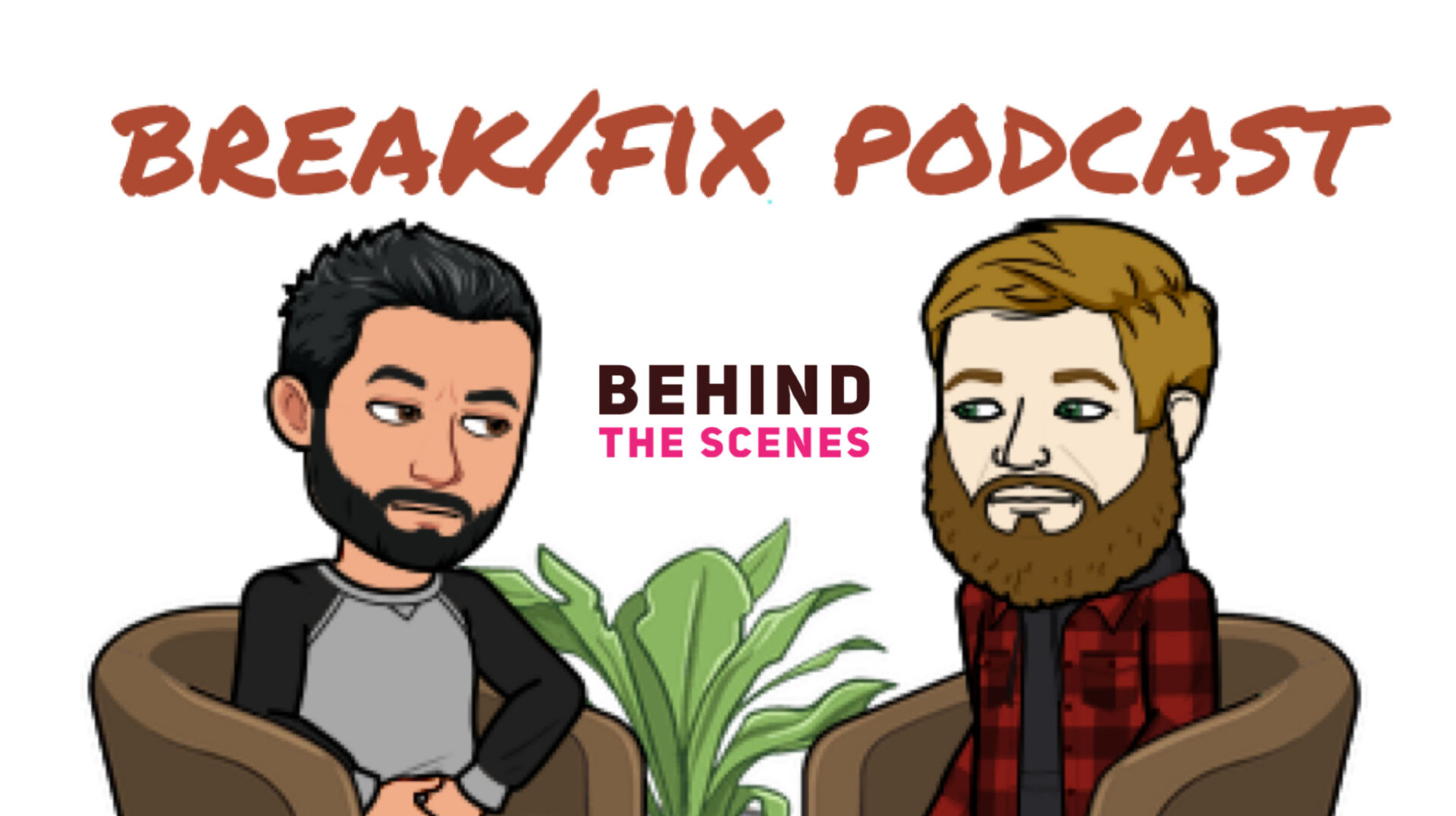
Consider becoming a GTM Patreon Supporter and get behind the scenes content and schwag!
Do you like what you've seen, heard and read? - Don't forget, GTM is fueled by volunteers and remains a no-annual-fee organization, but we still need help to pay to keep the lights on... For as little as $2.50/month you can help us keep the momentum going so we can continue to record, write, edit and broadcast your favorite content. Support GTM today! or make a One Time Donation.
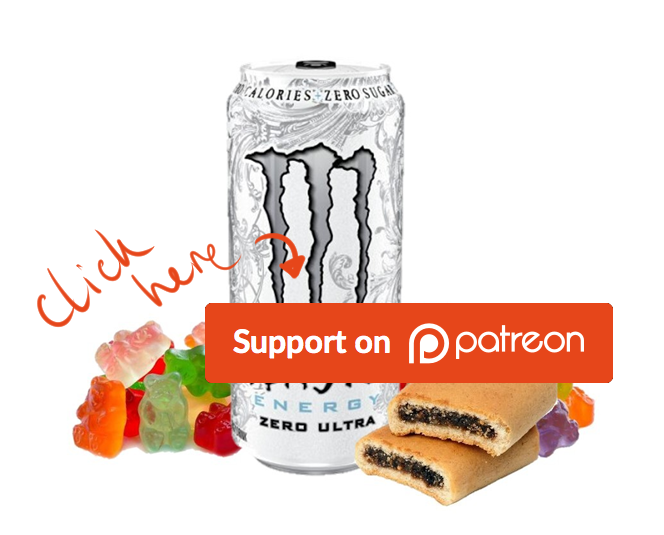
If you enjoyed this episode, please go to Apple Podcasts and leave us a review. That would help us beat the algorithms and help spread the enthusiasm to others by way of Break/Fix and GTM. Subscribe to Break/Fix using your favorite Podcast App:
 |  |  |
There's more to this story!
Be sure to check out the behind the scenes for this episode, filled with extras, bloopers, and other great moments not found in the final version. Become a Break/Fix VIP today by joining our Patreon.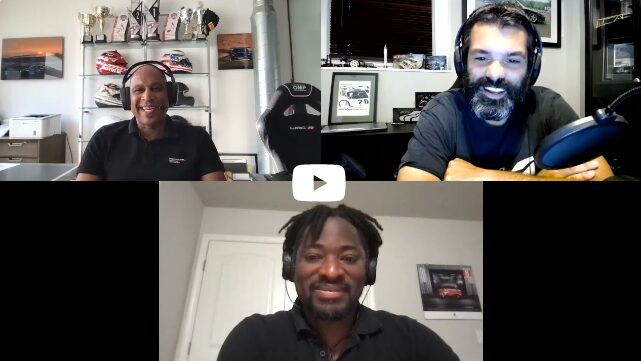
All of our BEHIND THE SCENES (BTS) Break/Fix episodes are raw and unedited, and expressly shared with the permission and consent of our guests.
Robb’s cars have been featured in Forza Motorsports!
Guest Co-Host: David L. Middleton
In case you missed it... be sure to check out the Break/Fix episode with our co-host. |  |  |
This content has been brought to you in-part by sponsorship through...
 | 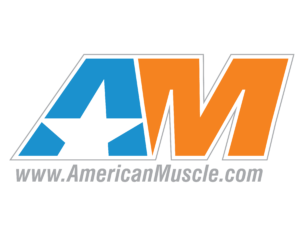 |  |  |


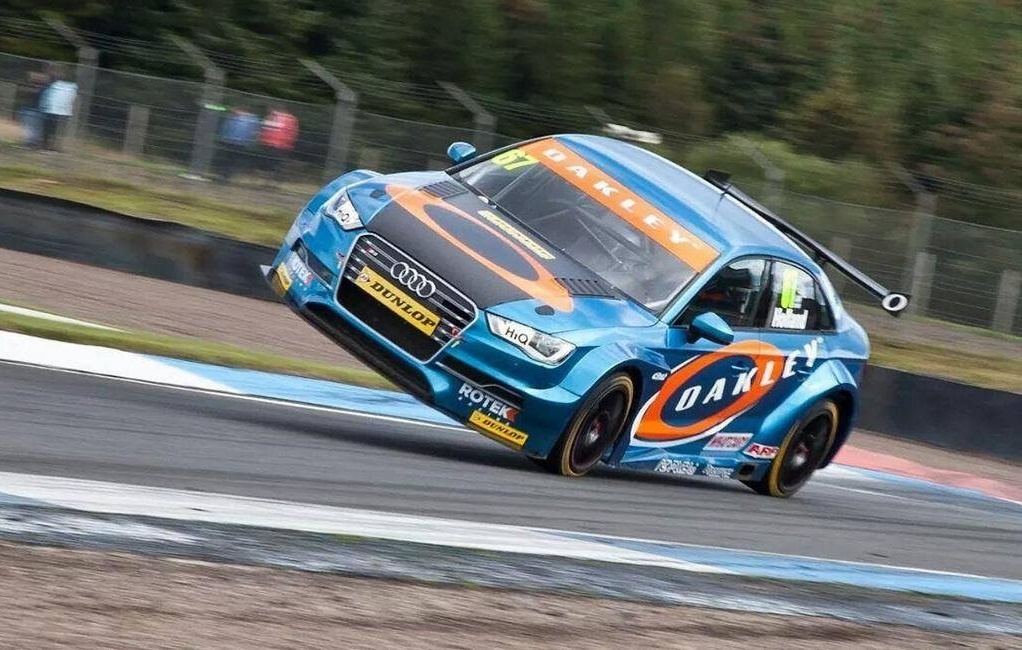
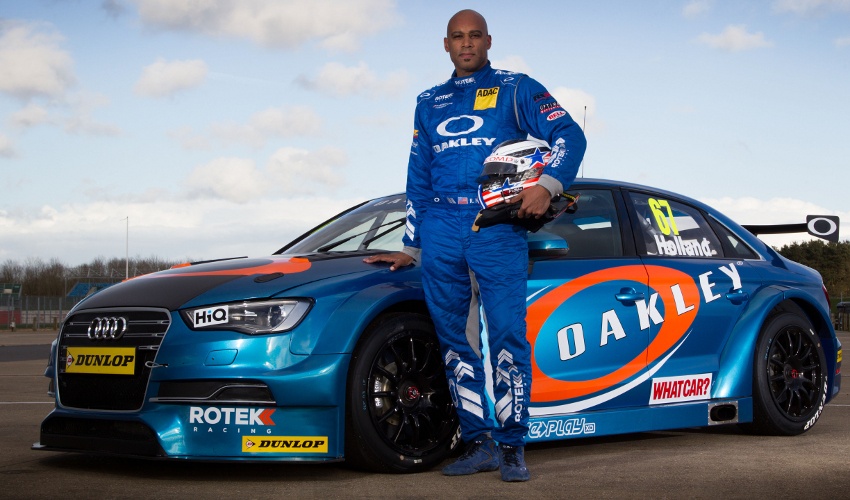
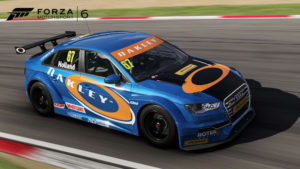
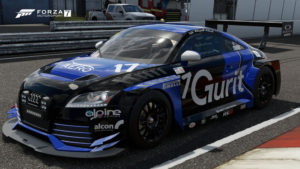
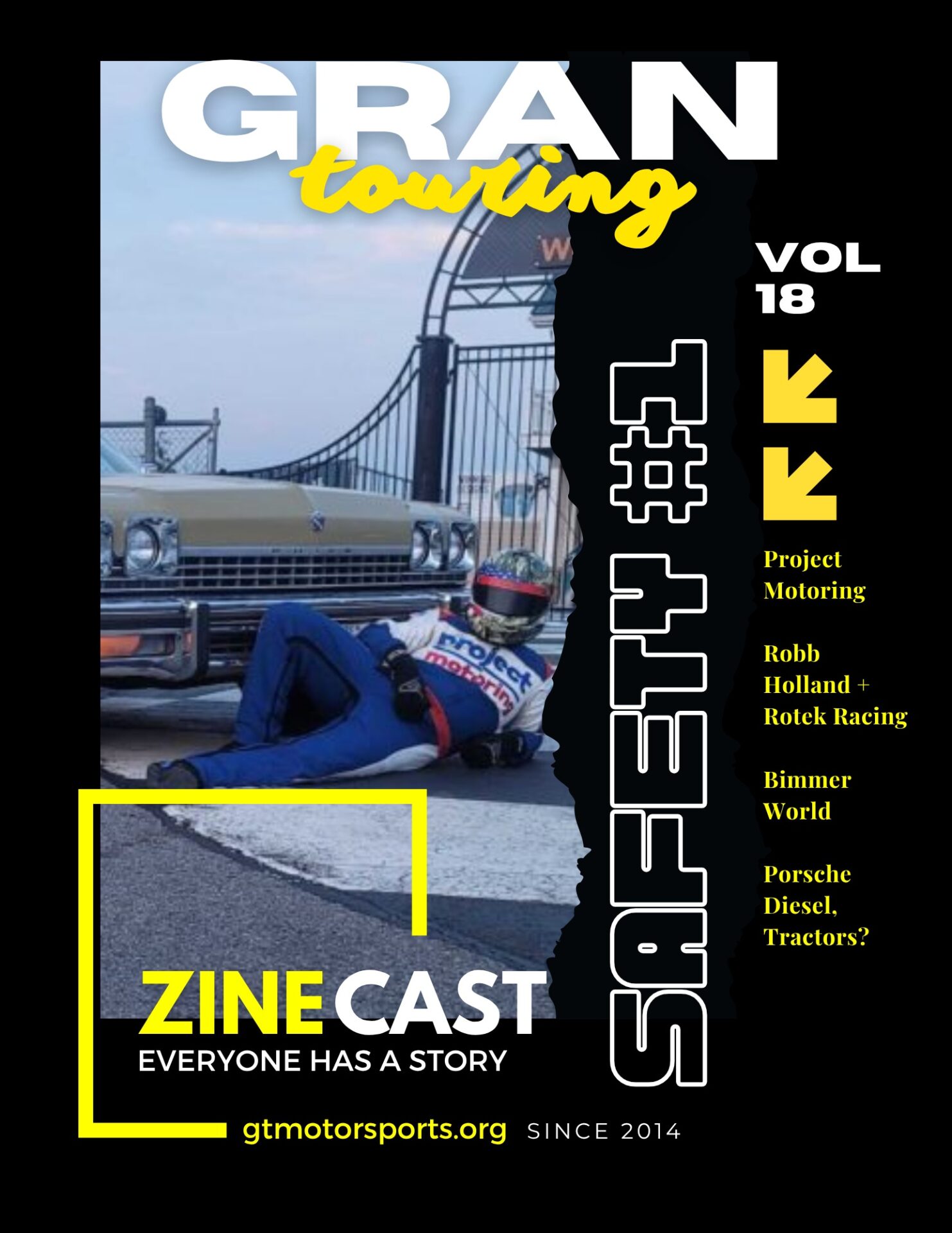



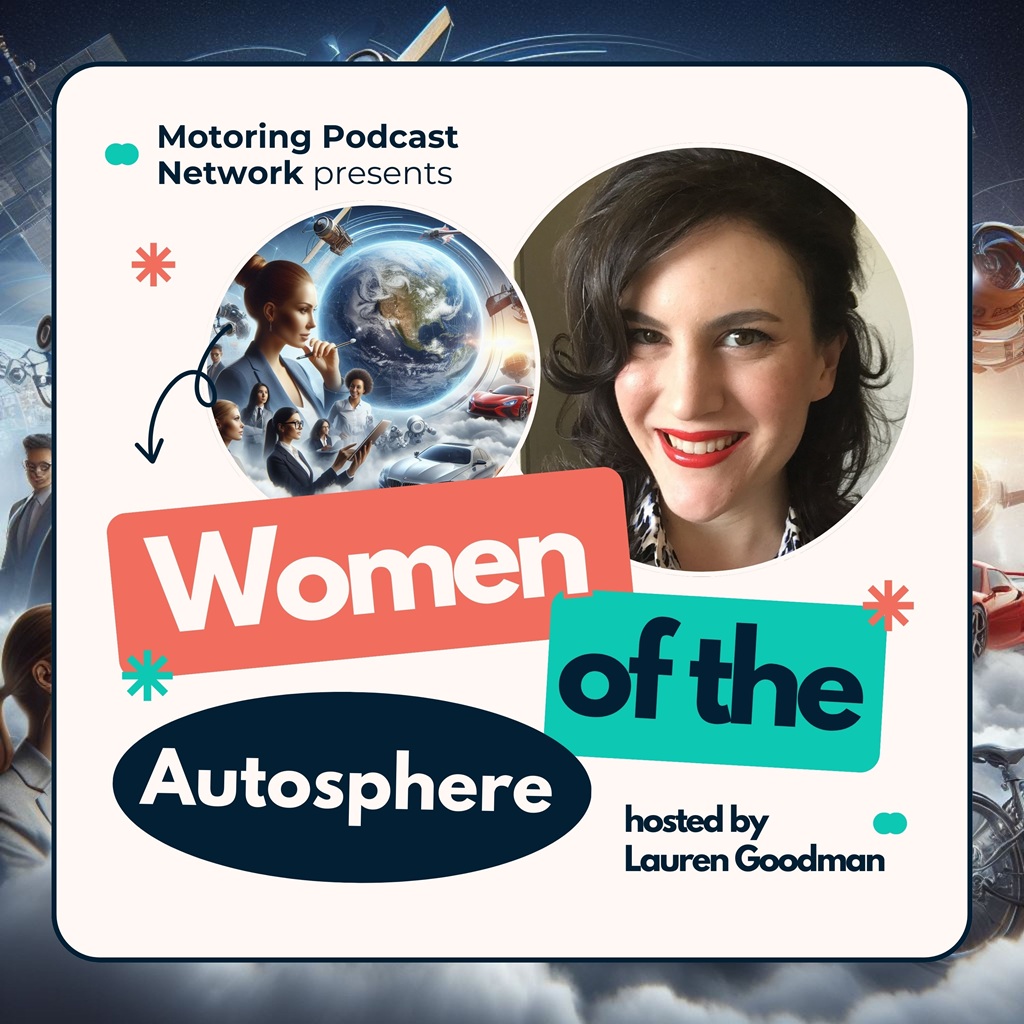
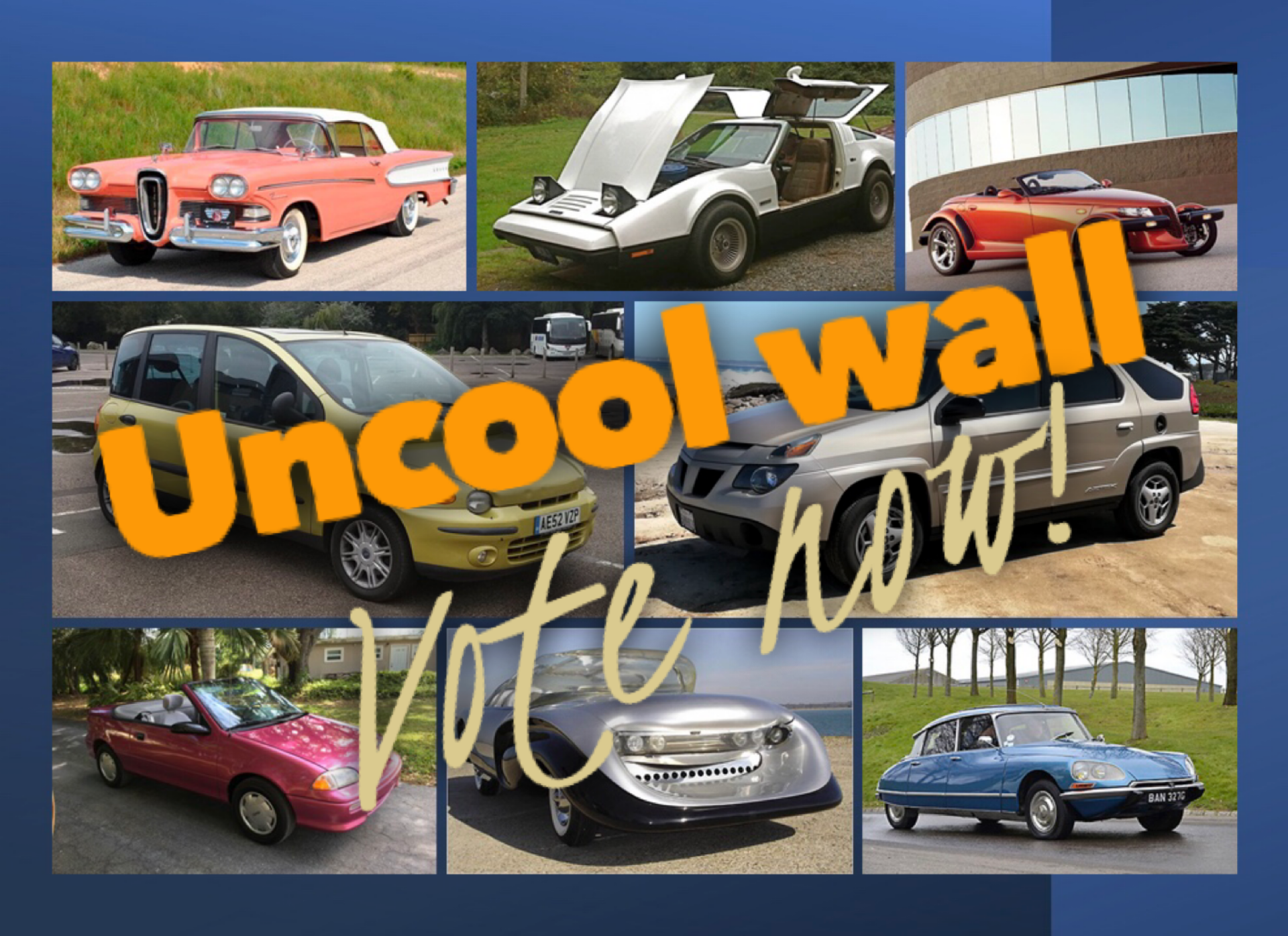



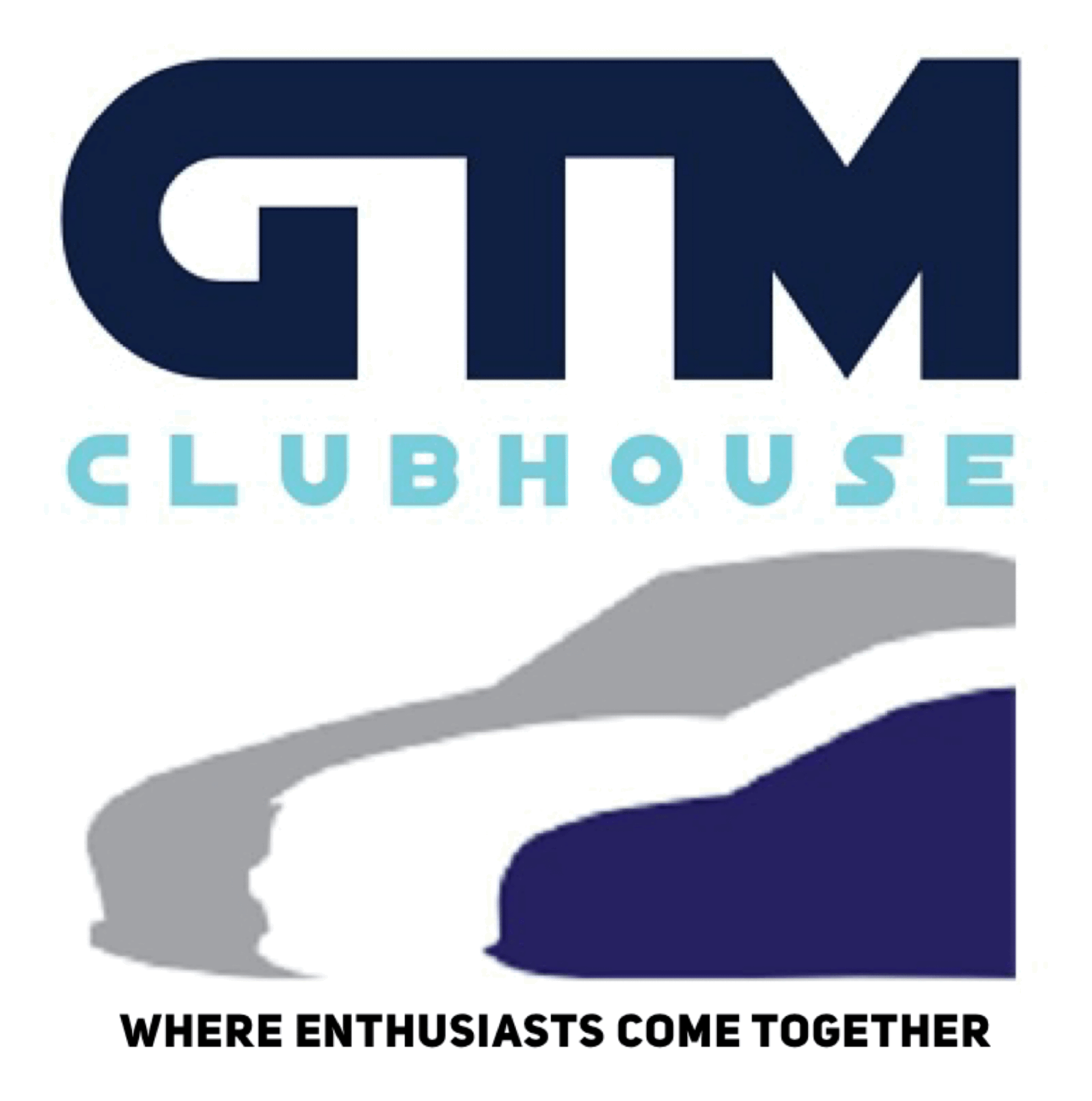
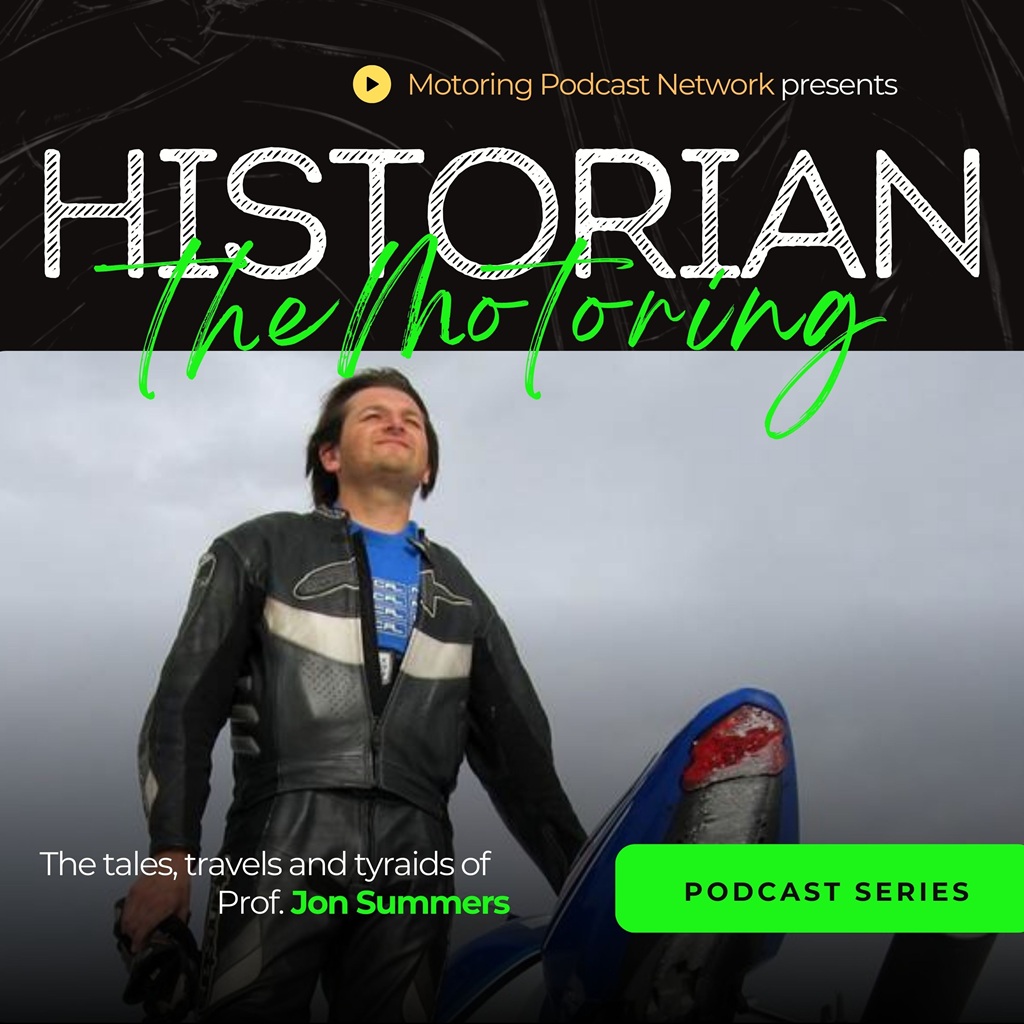
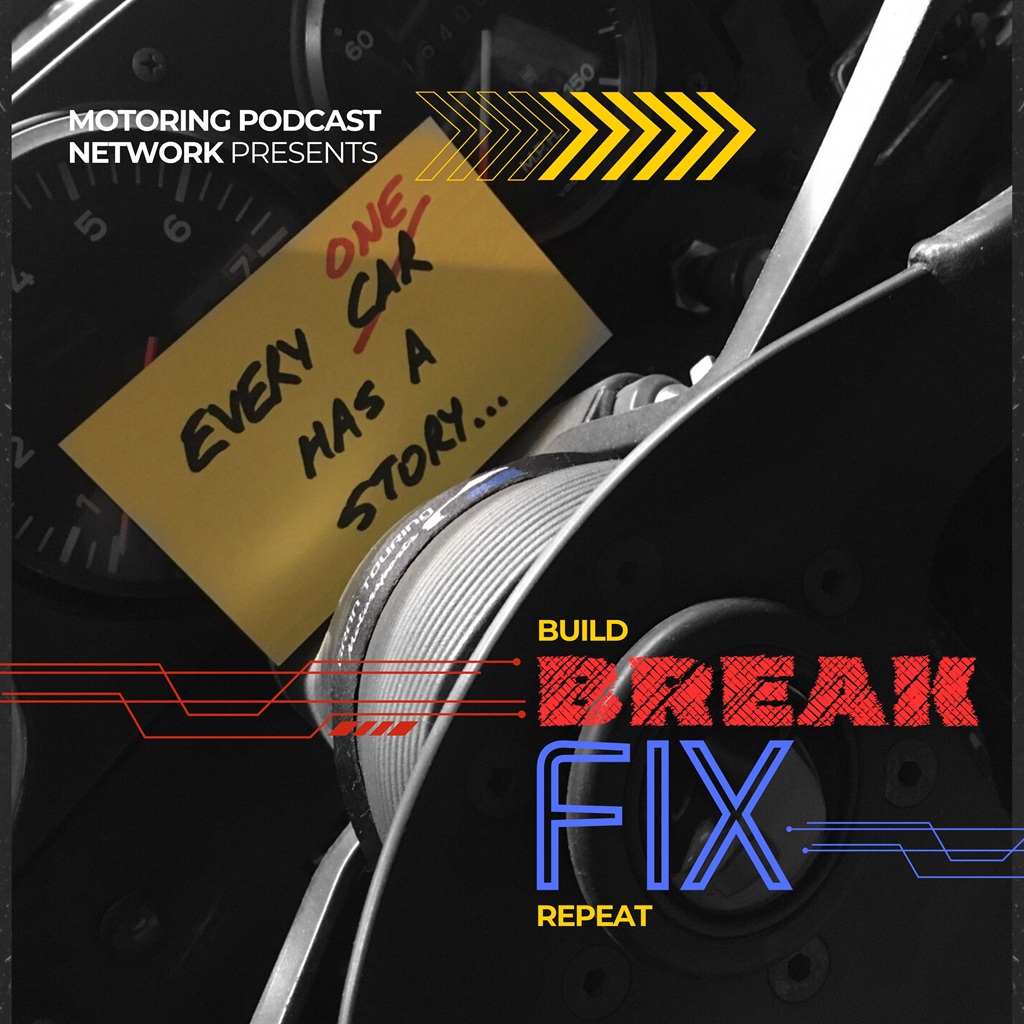



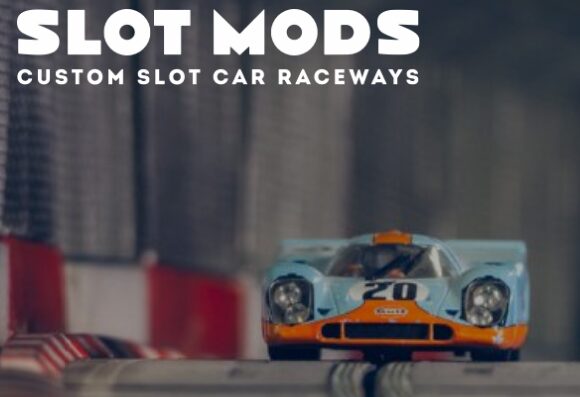


Highly energetic article, I enjoyed that a lot. Will there be a part 2?